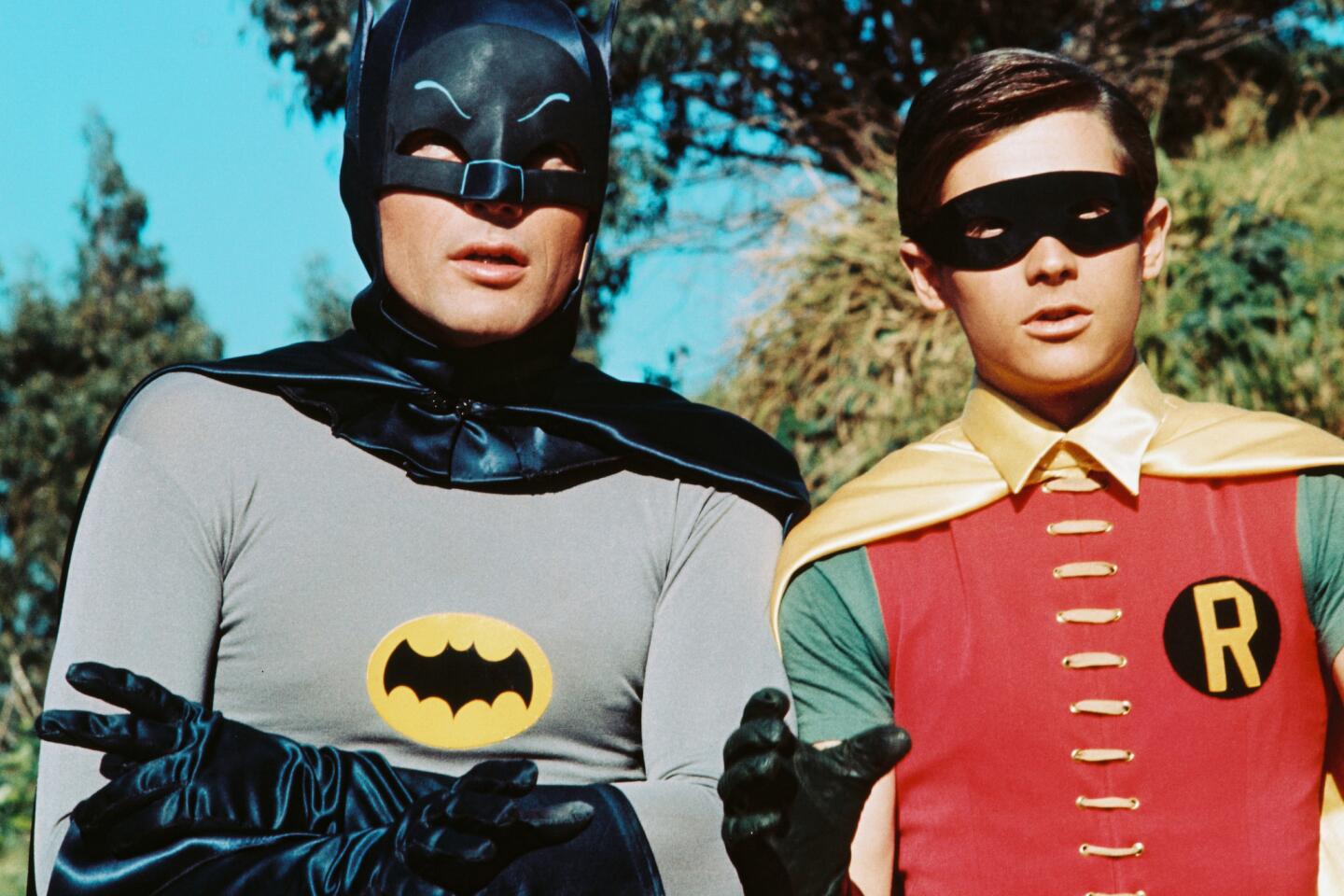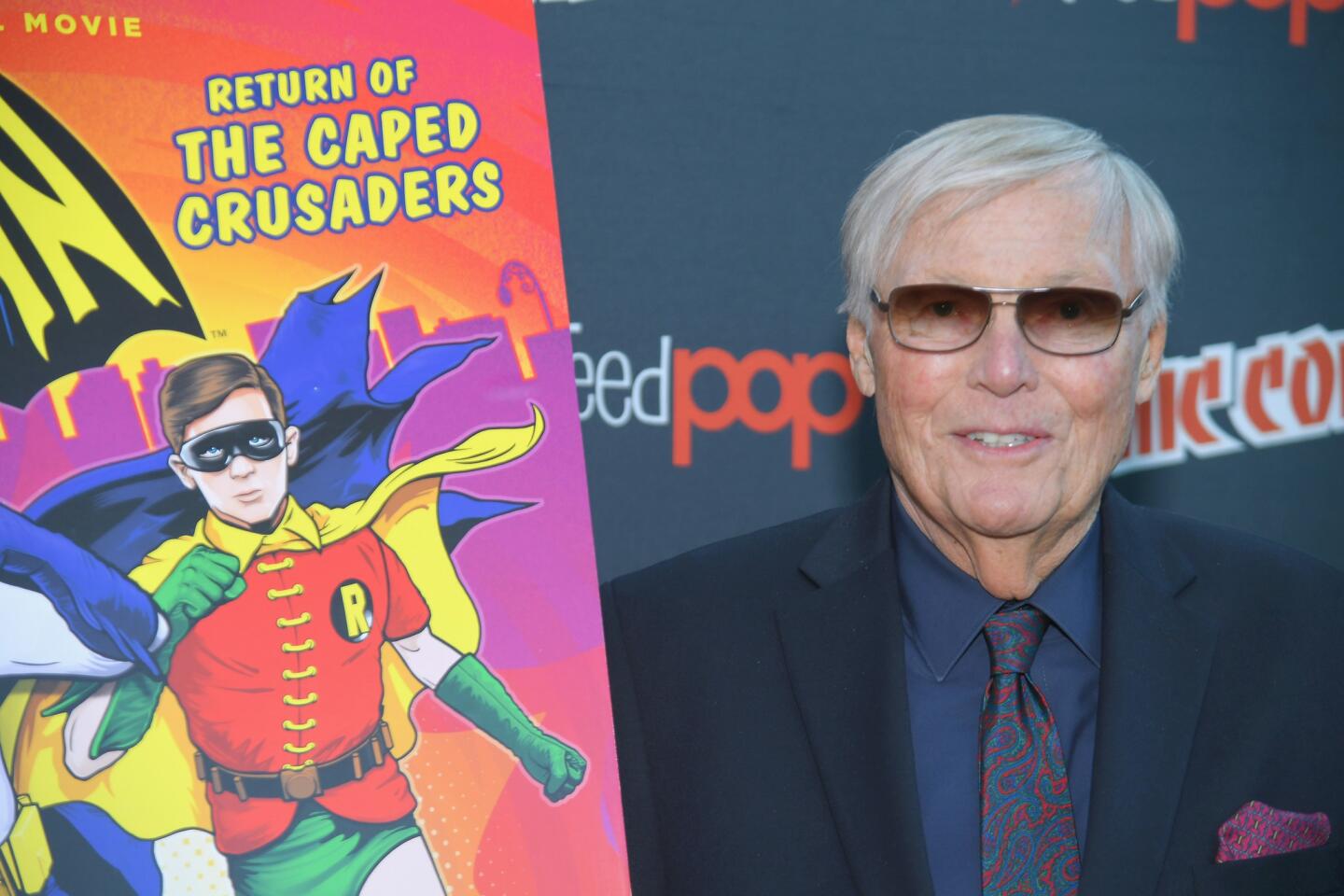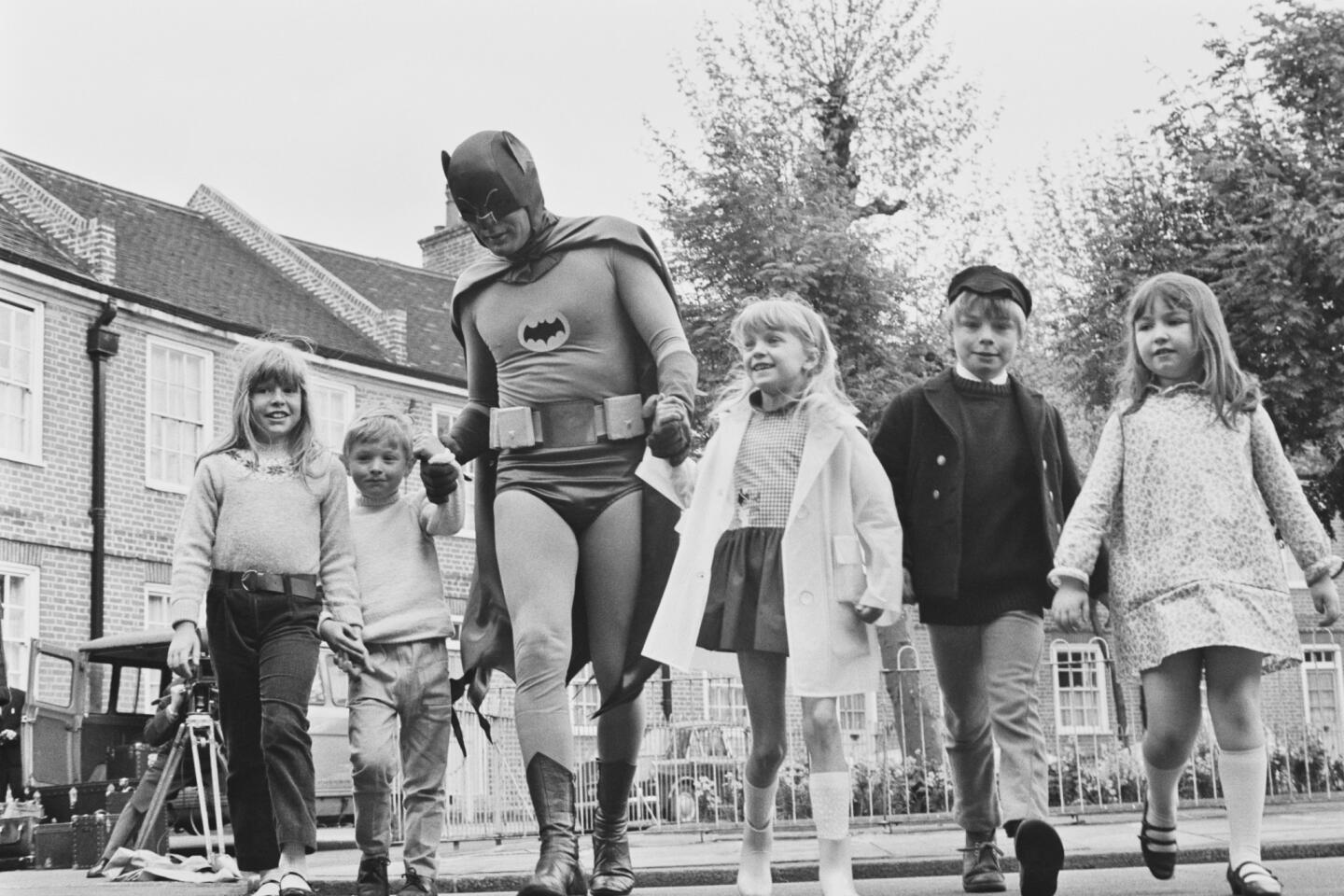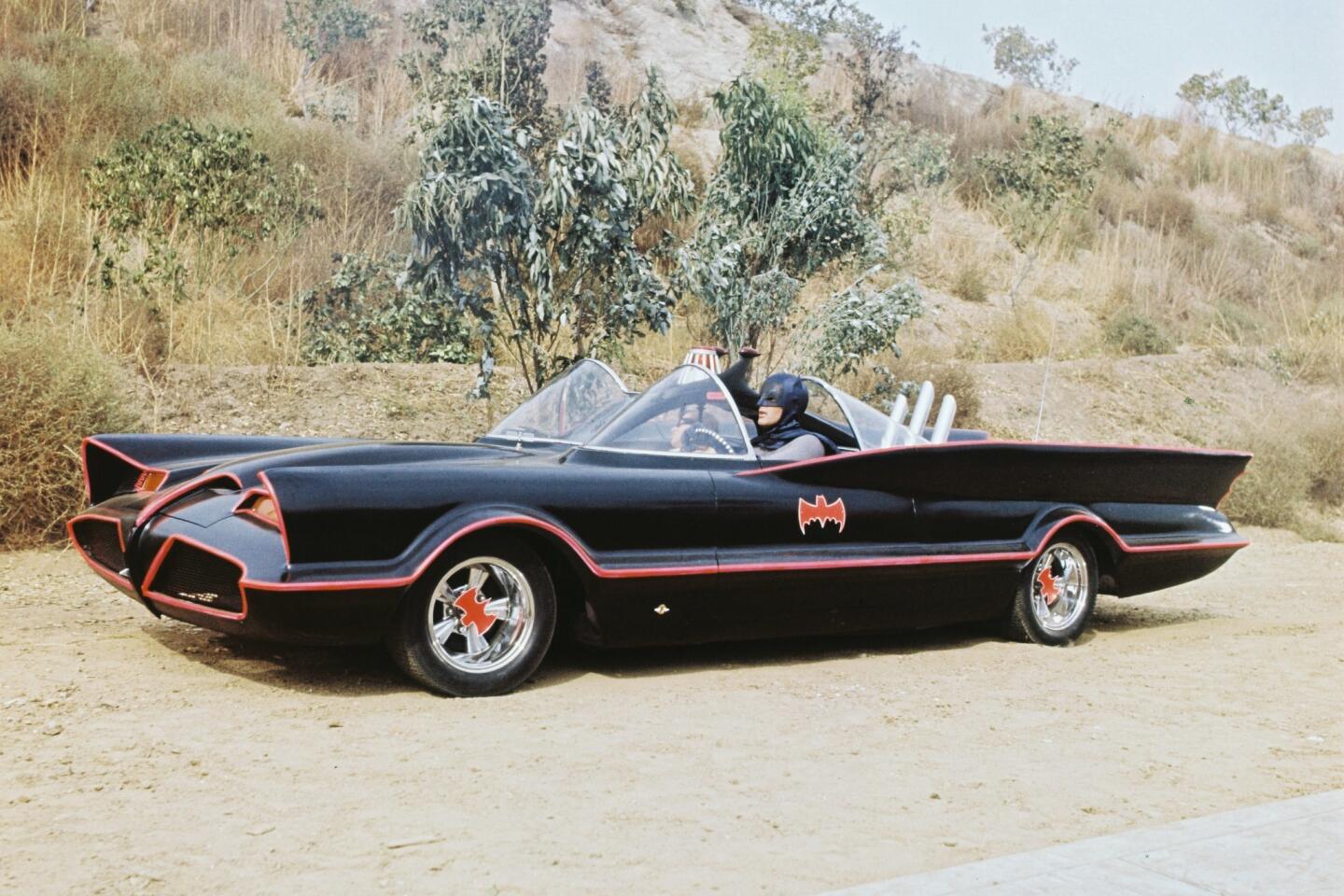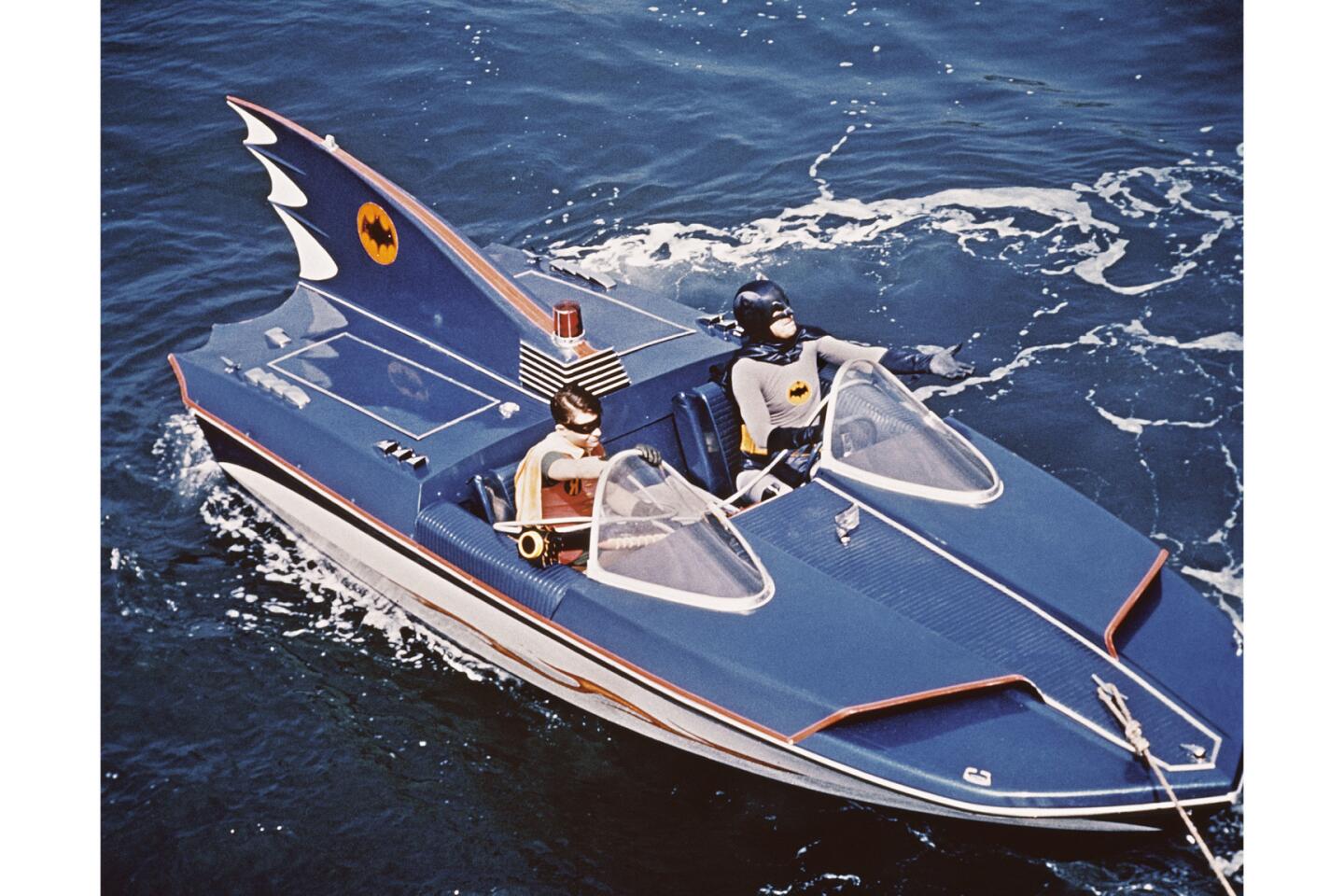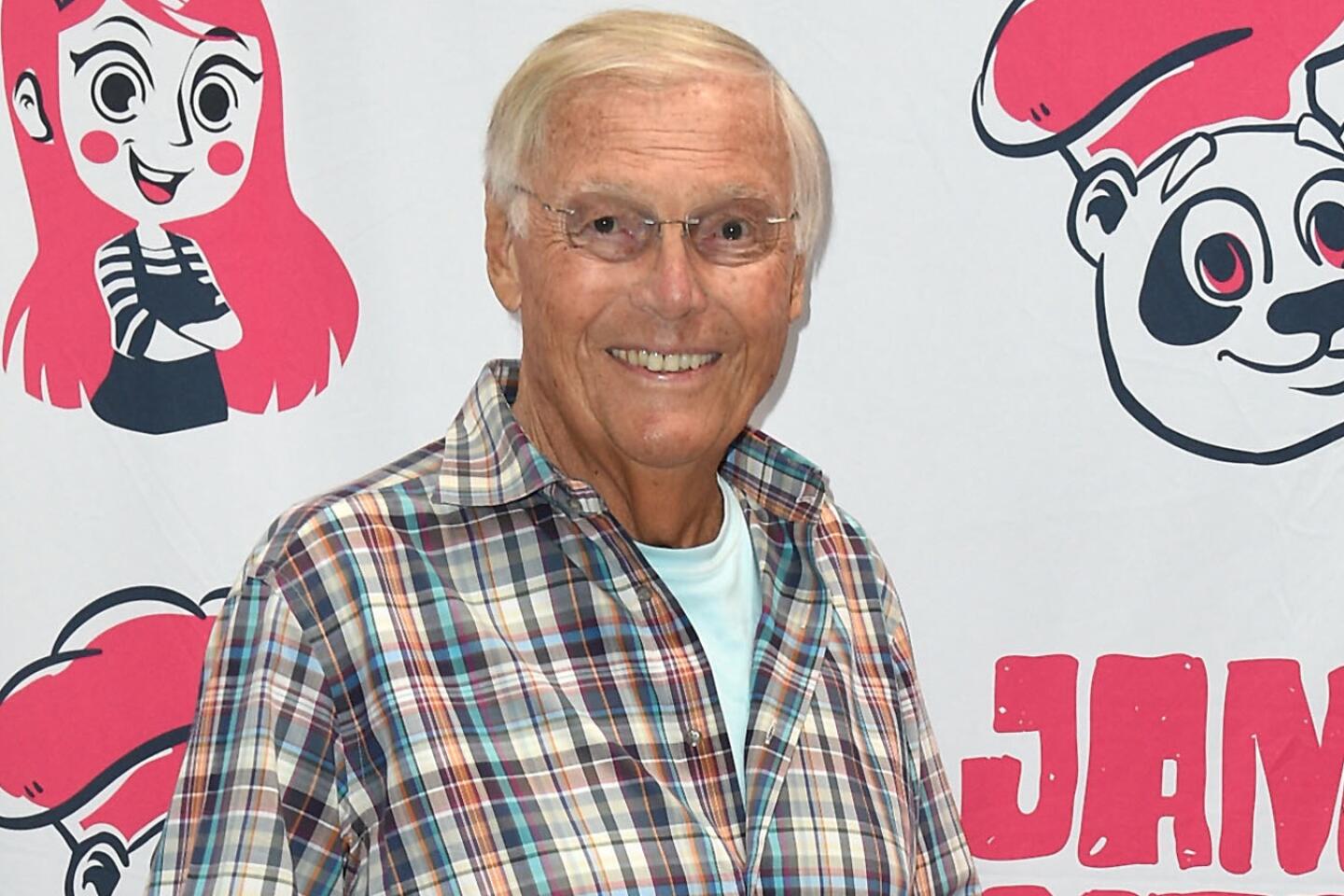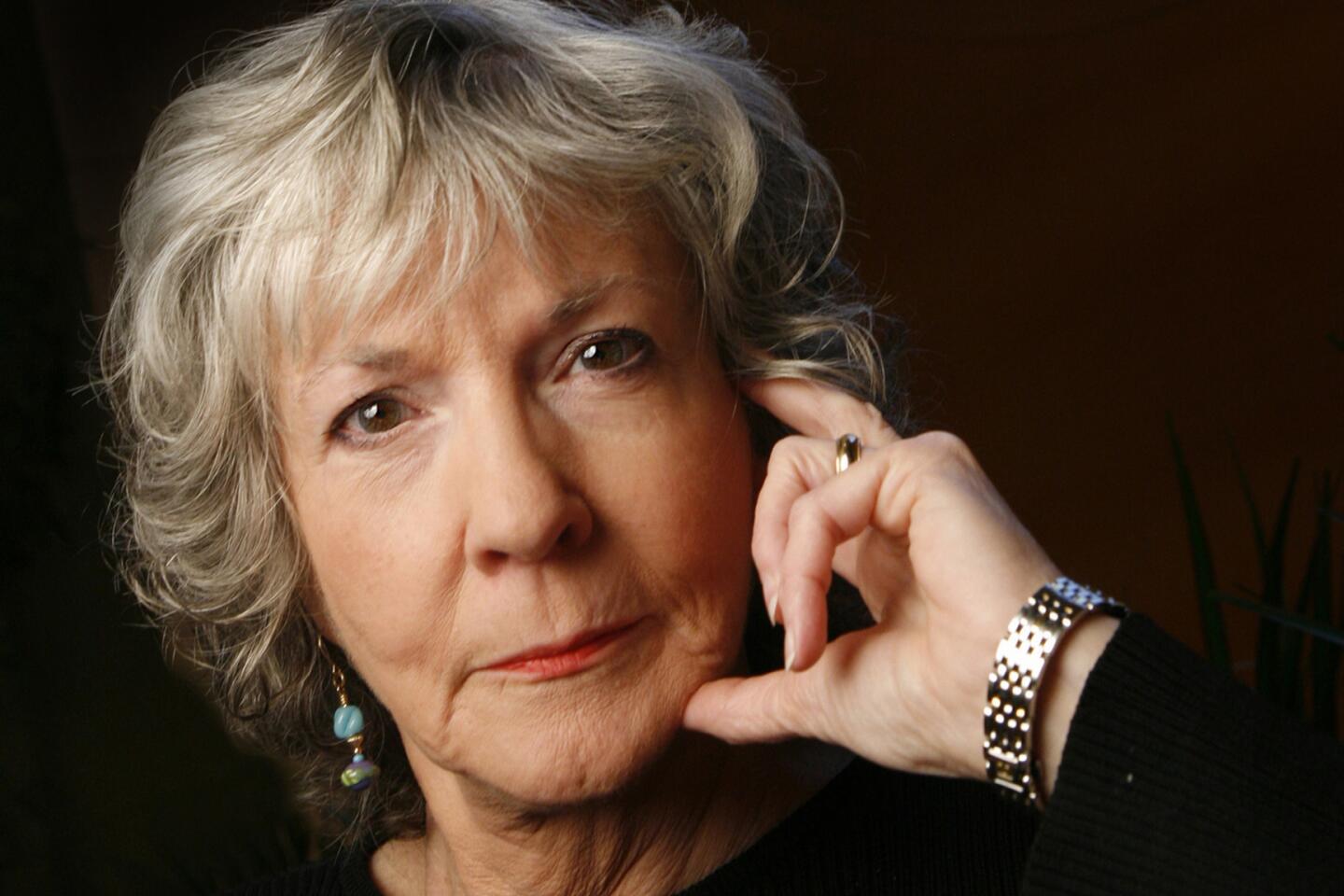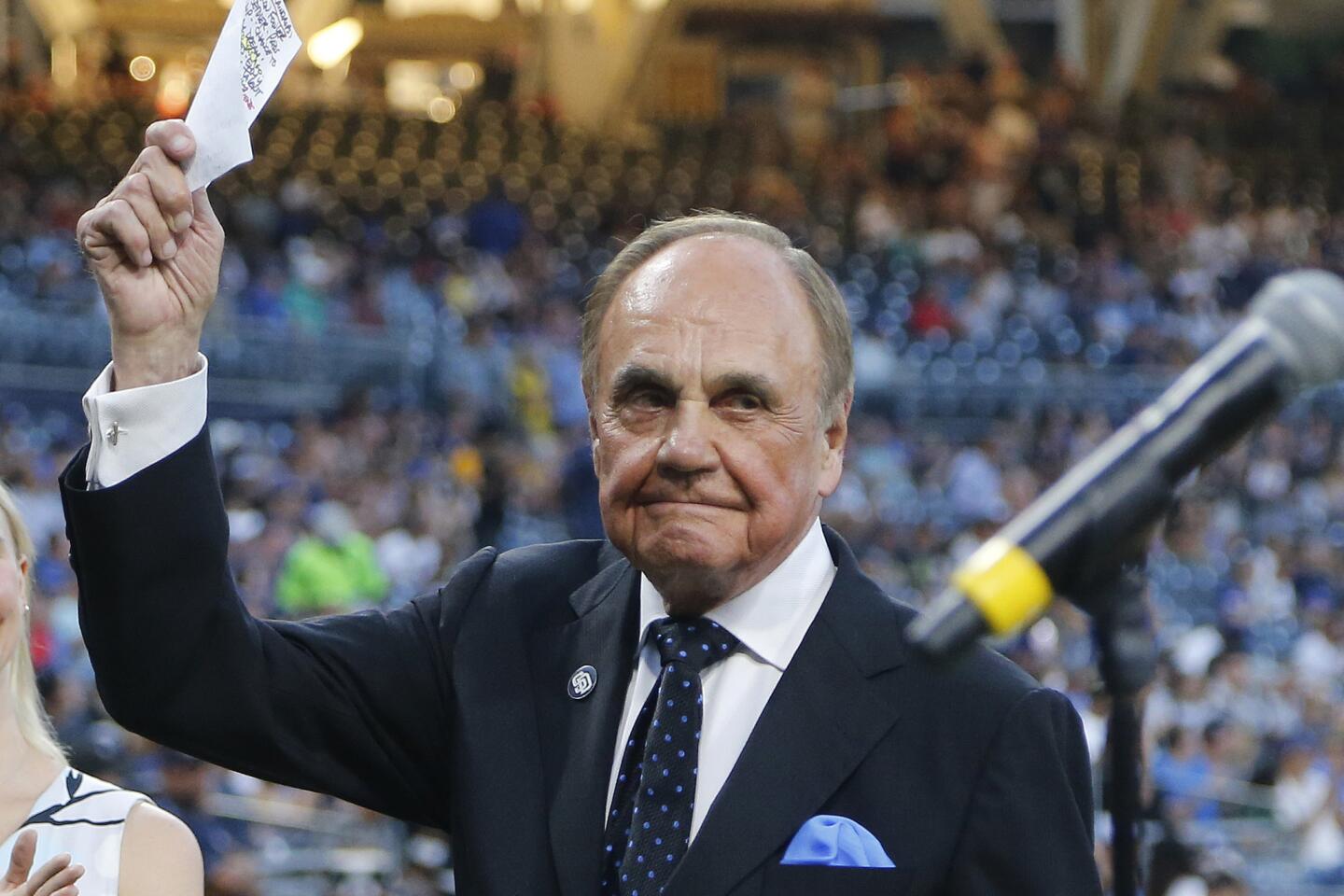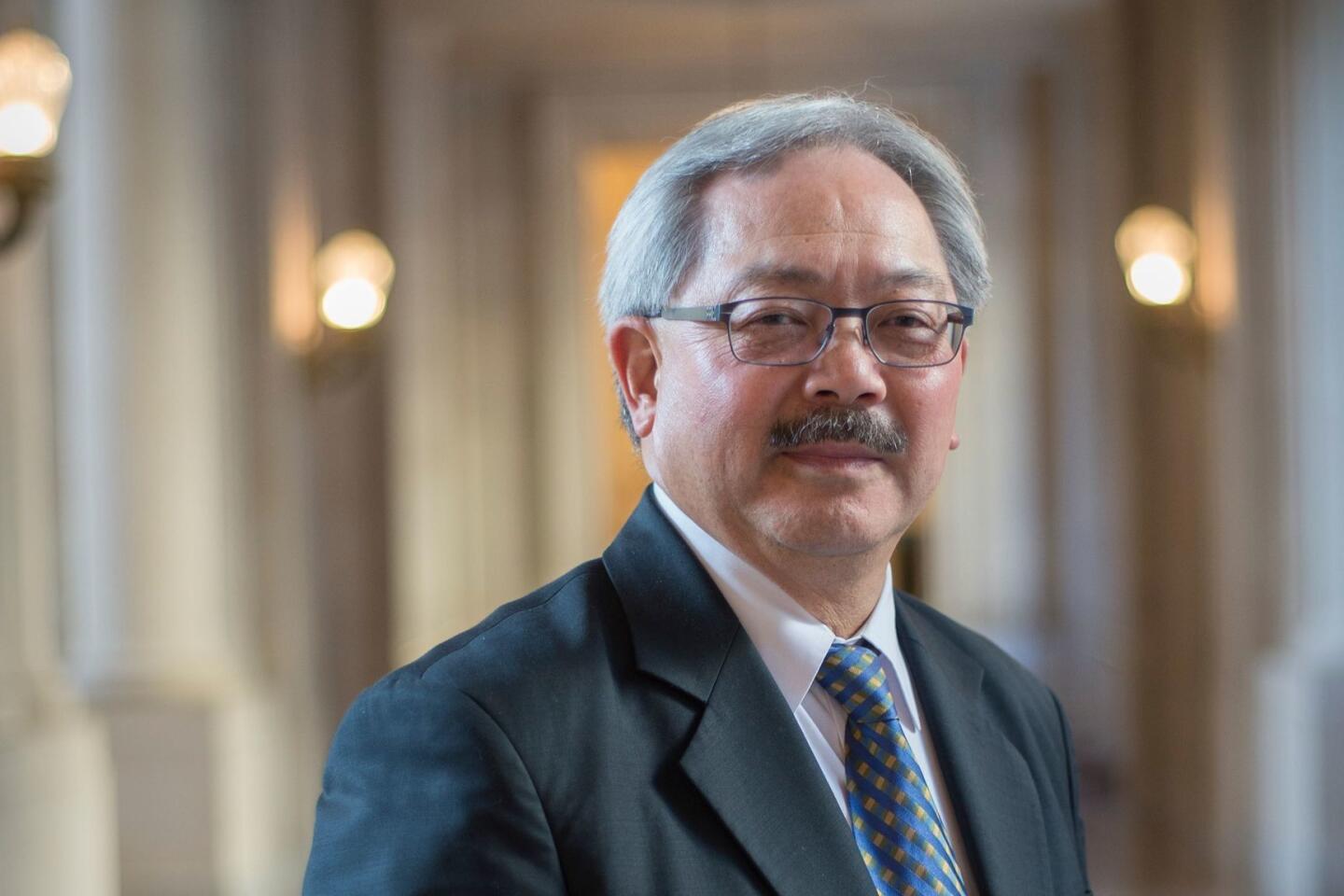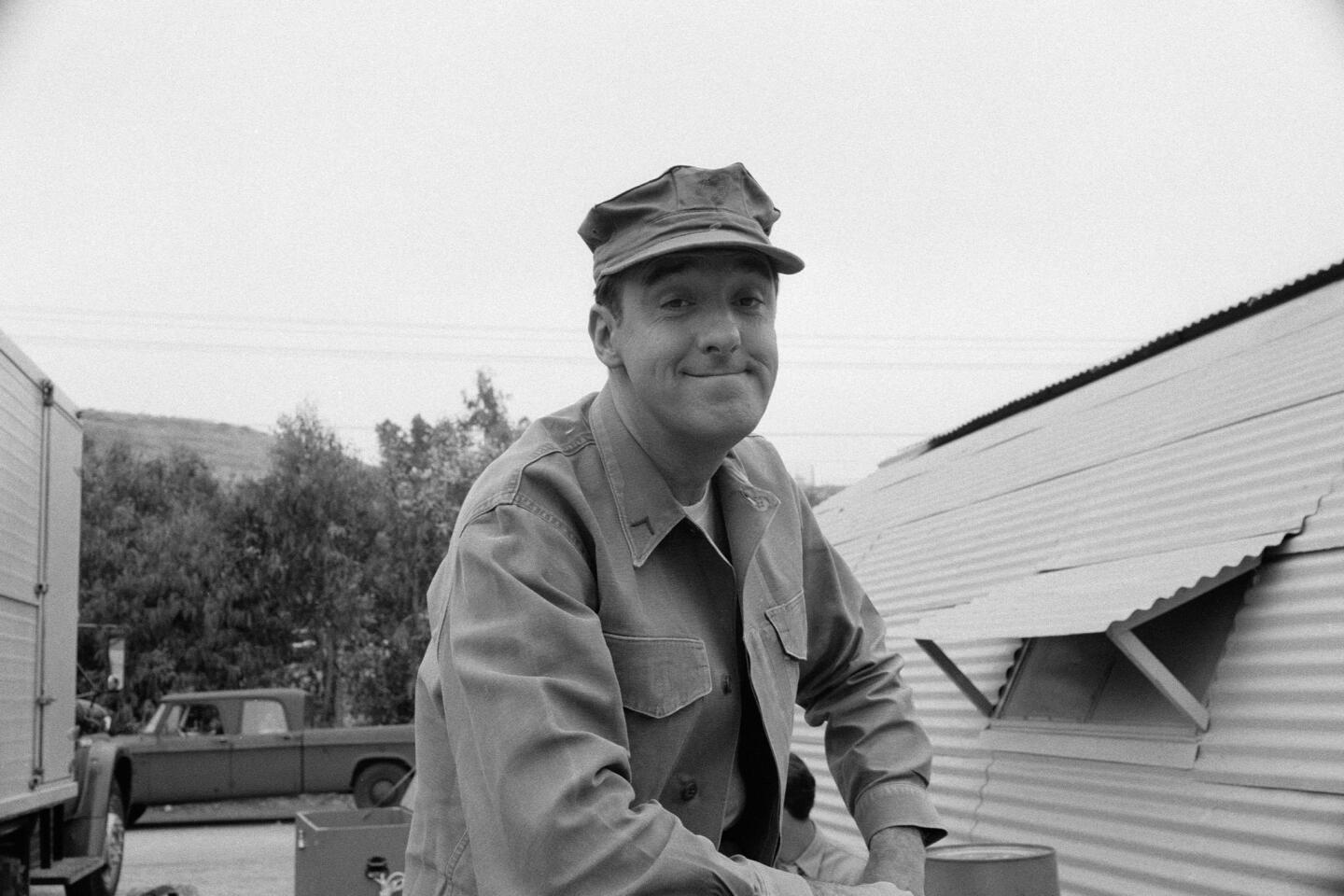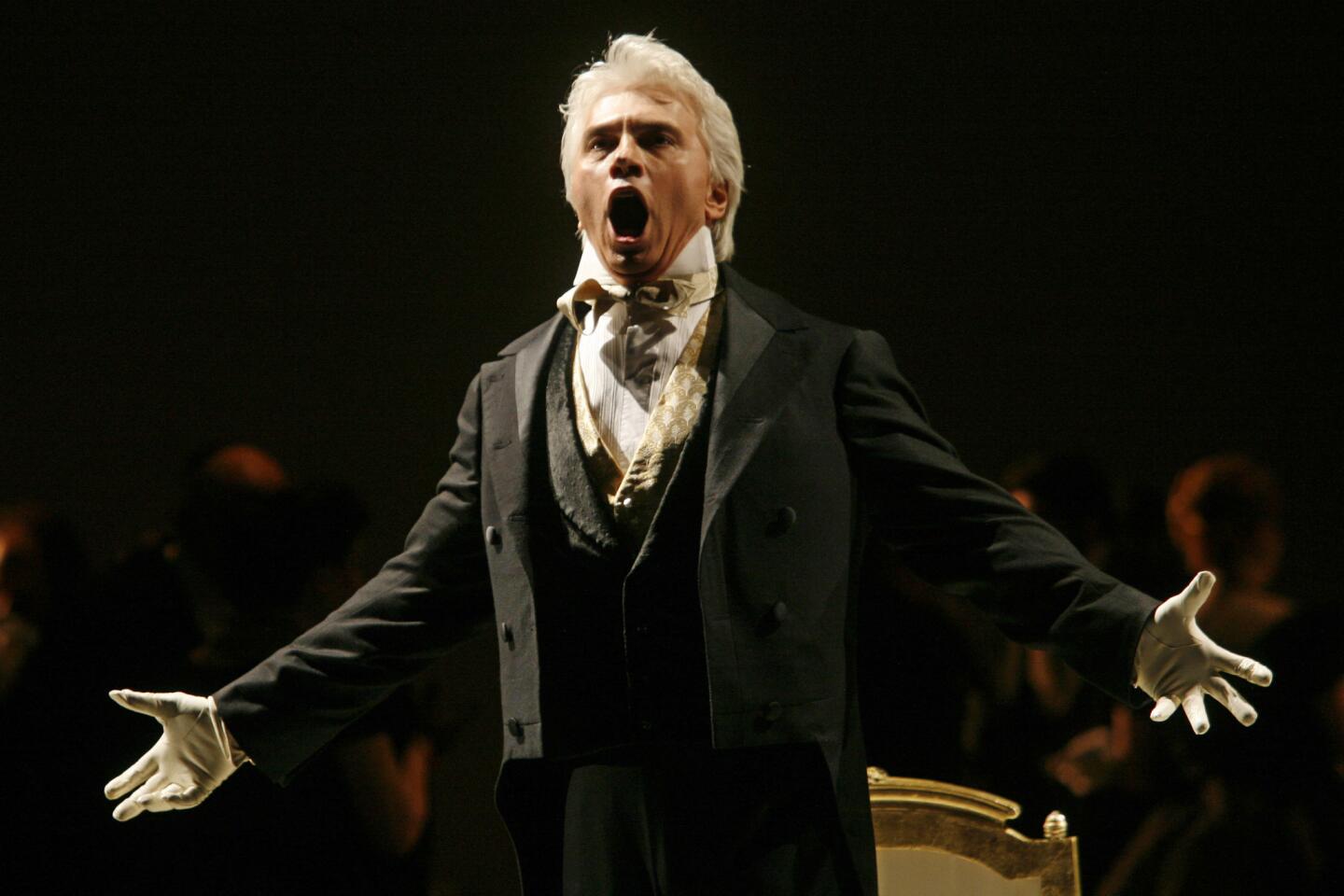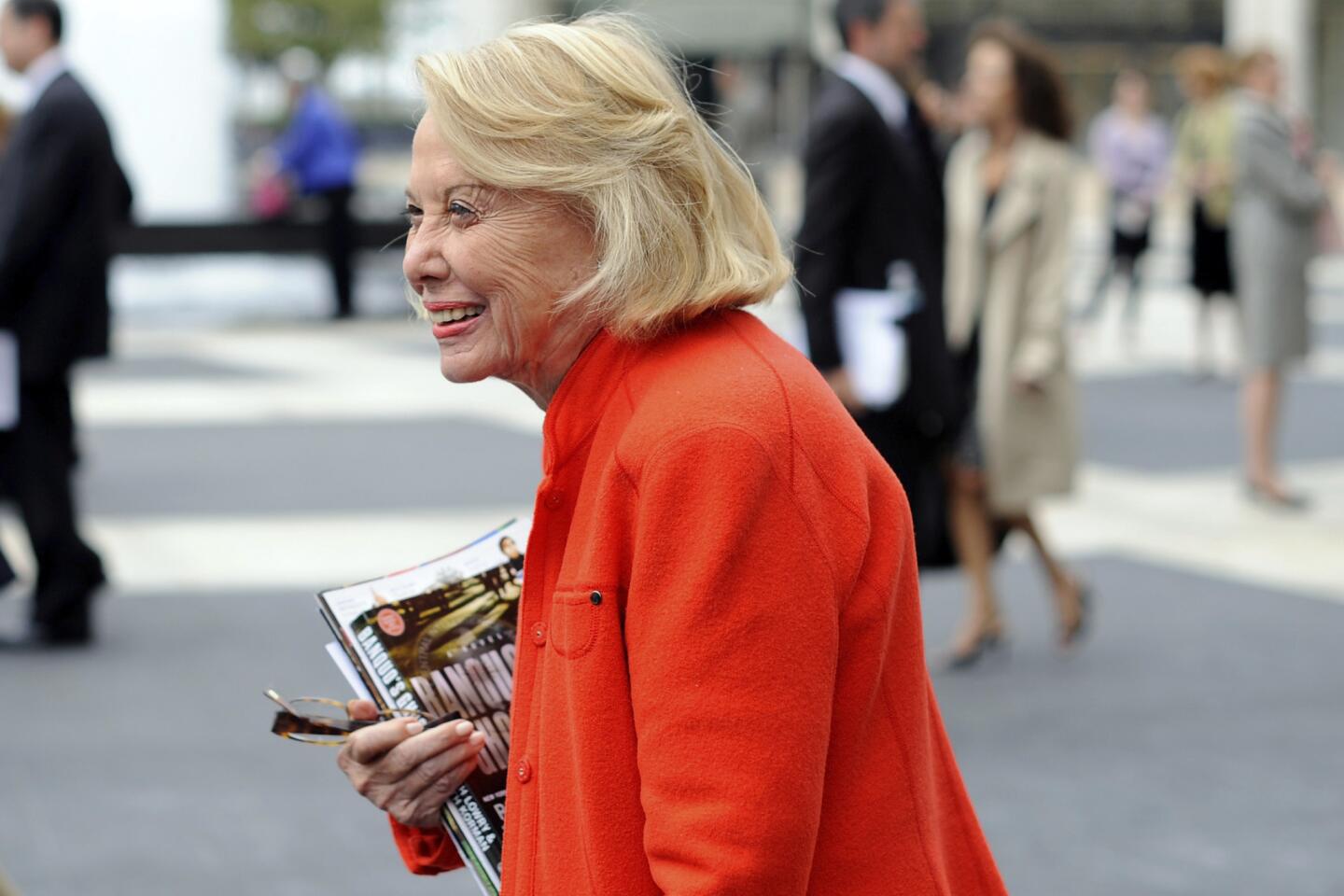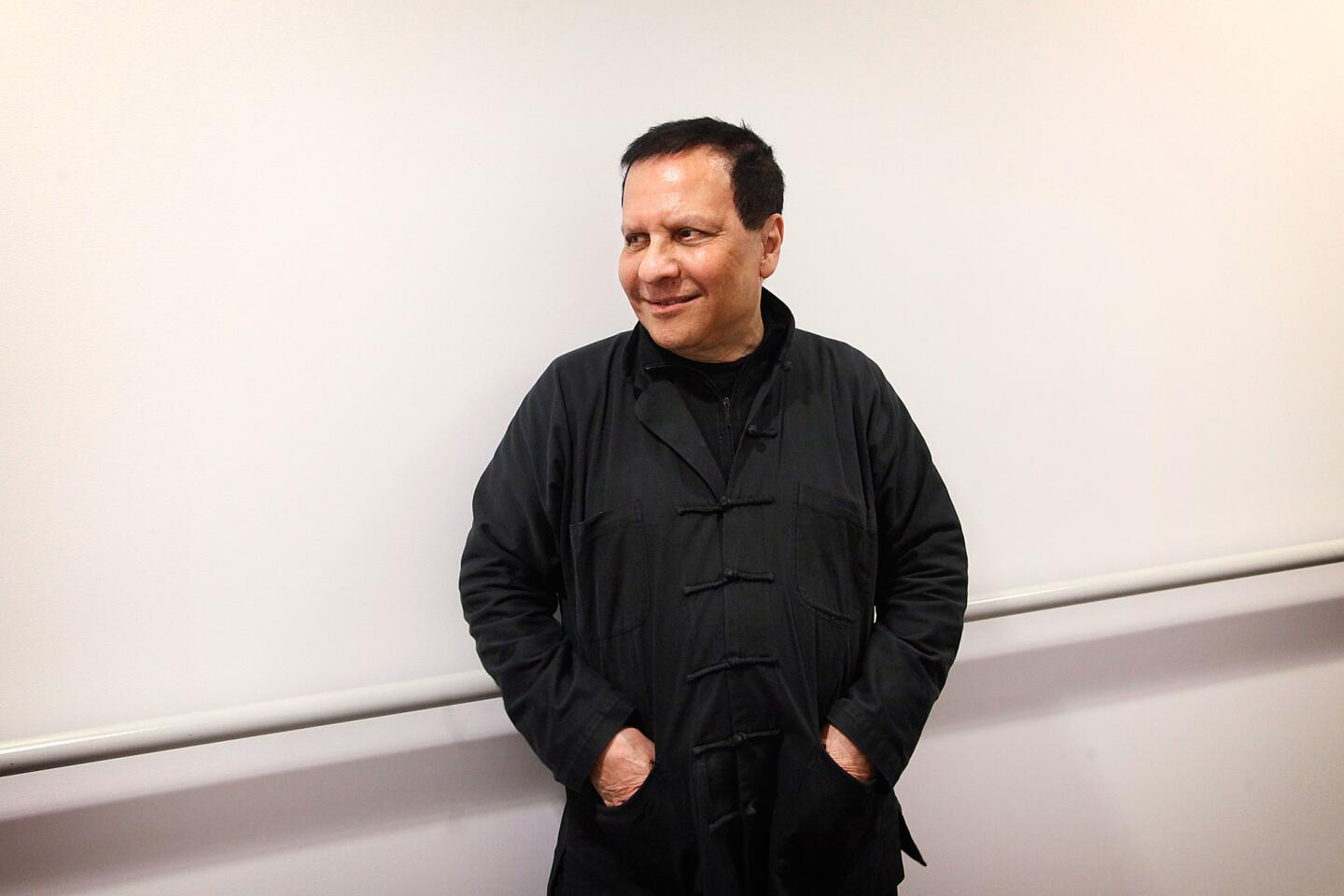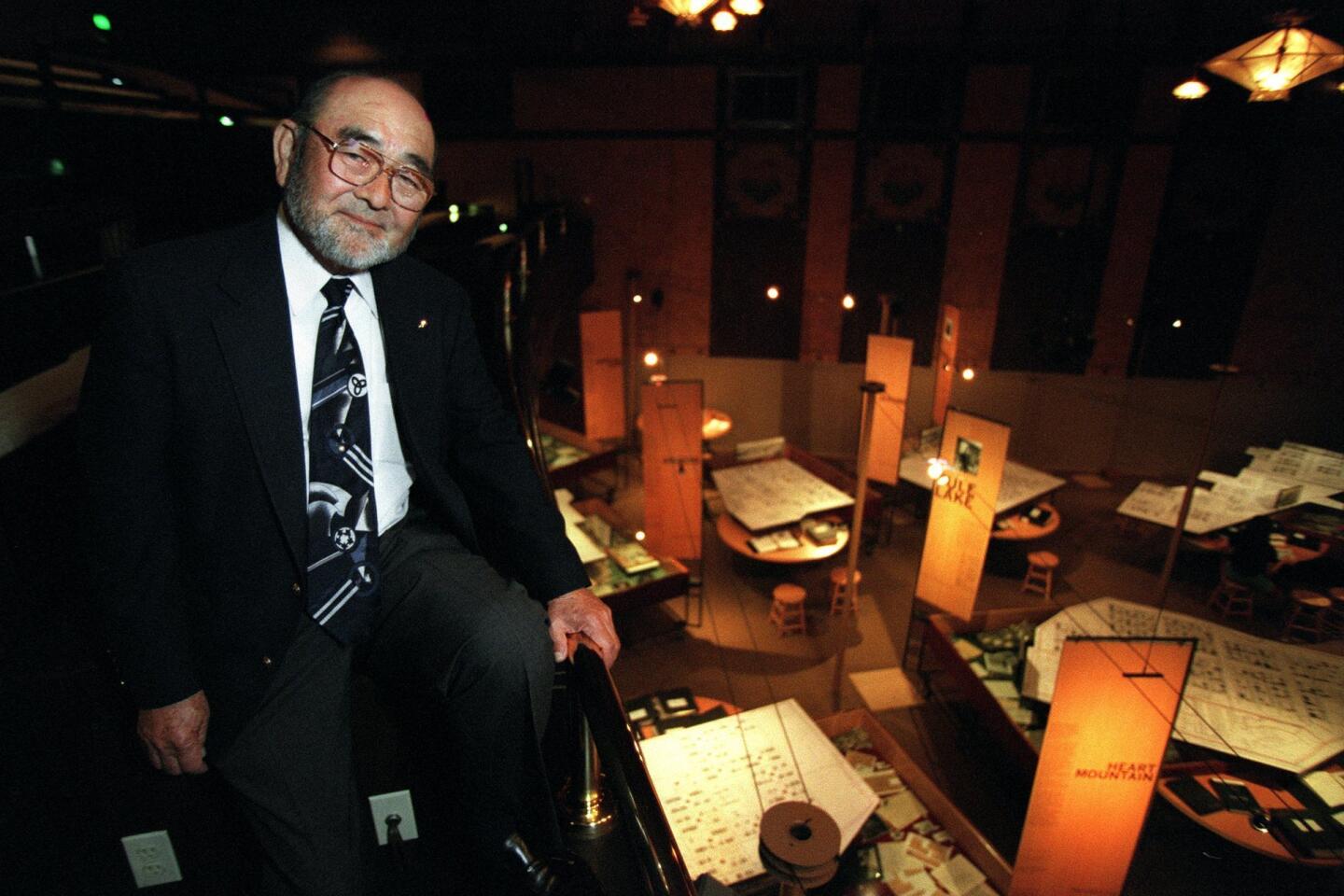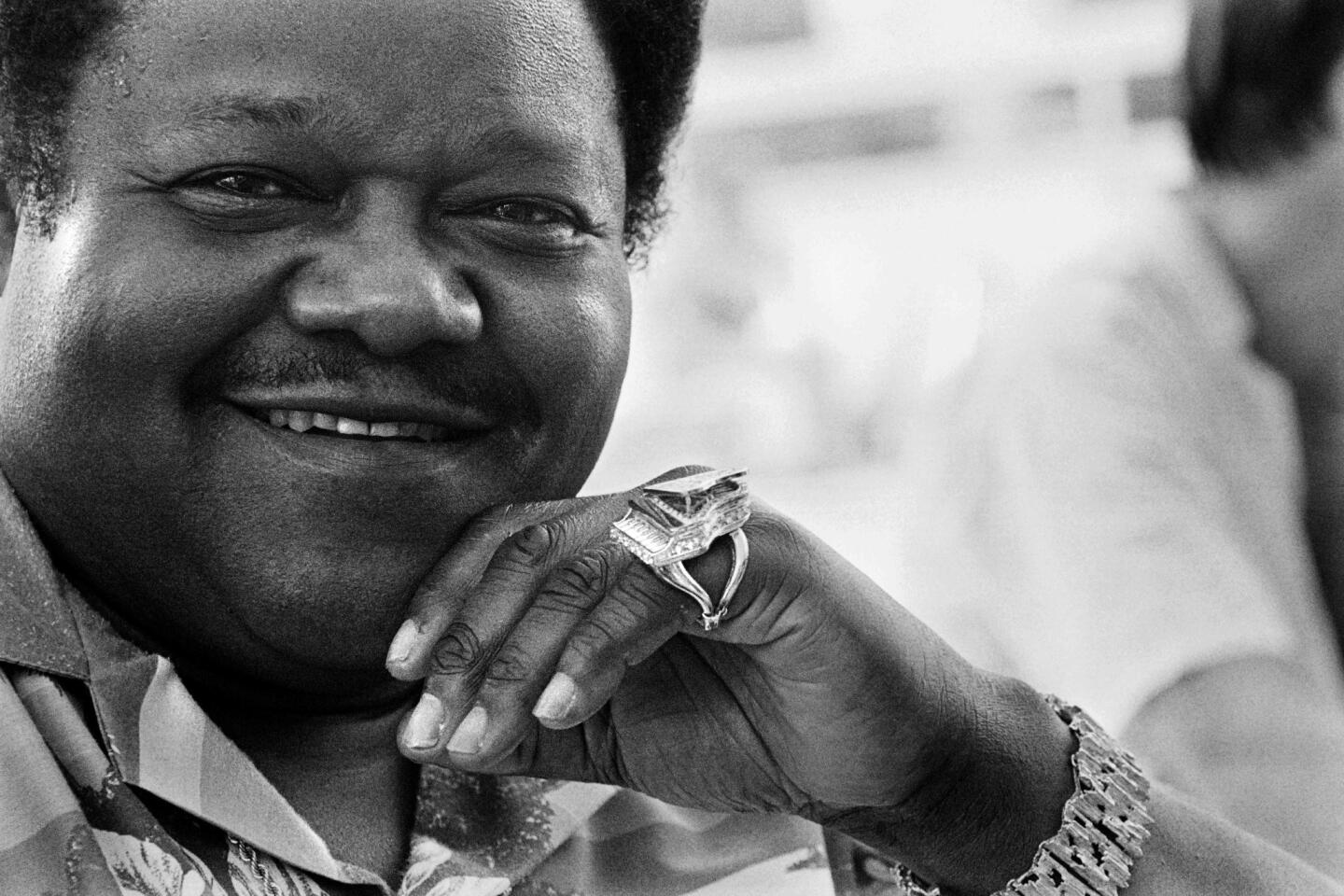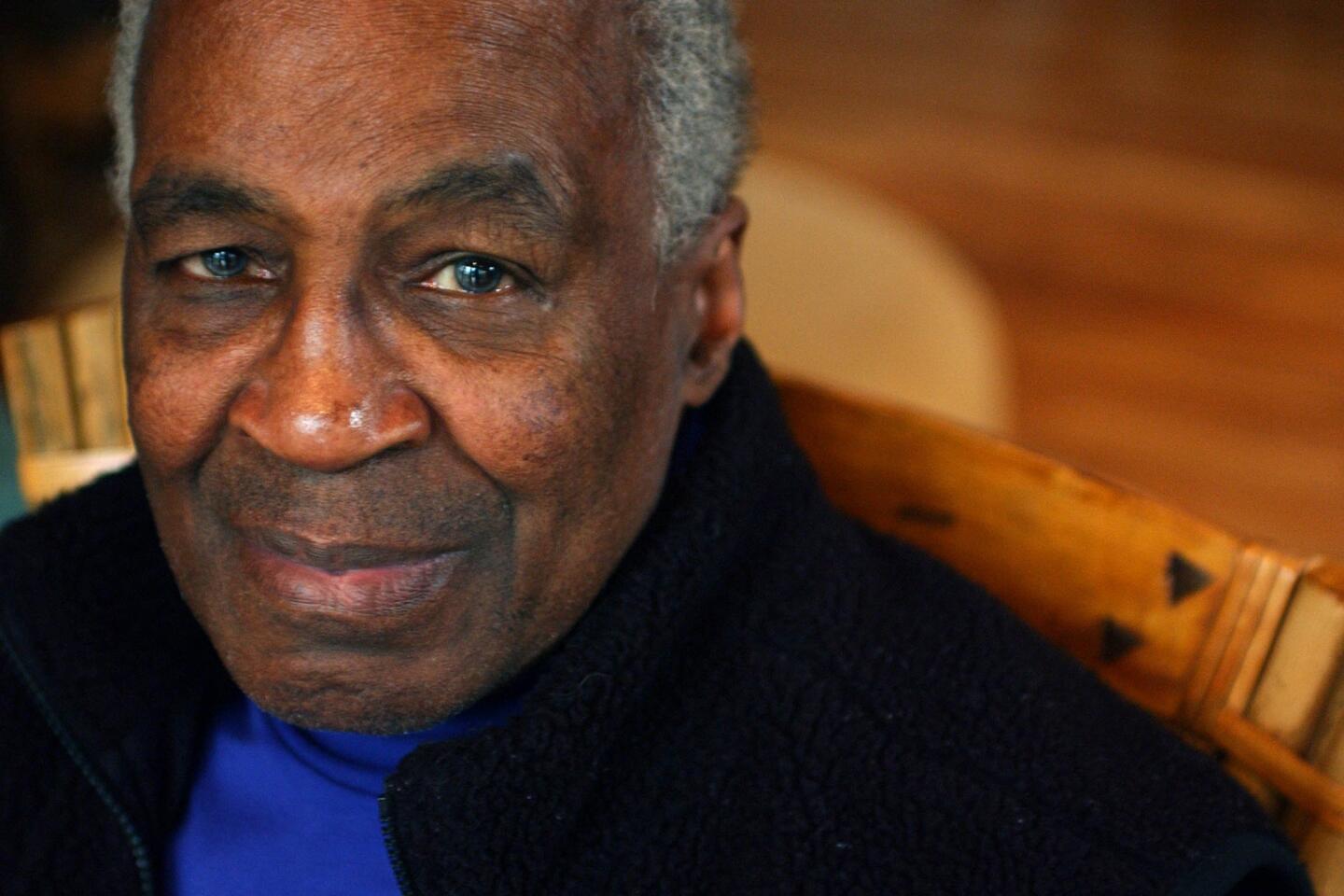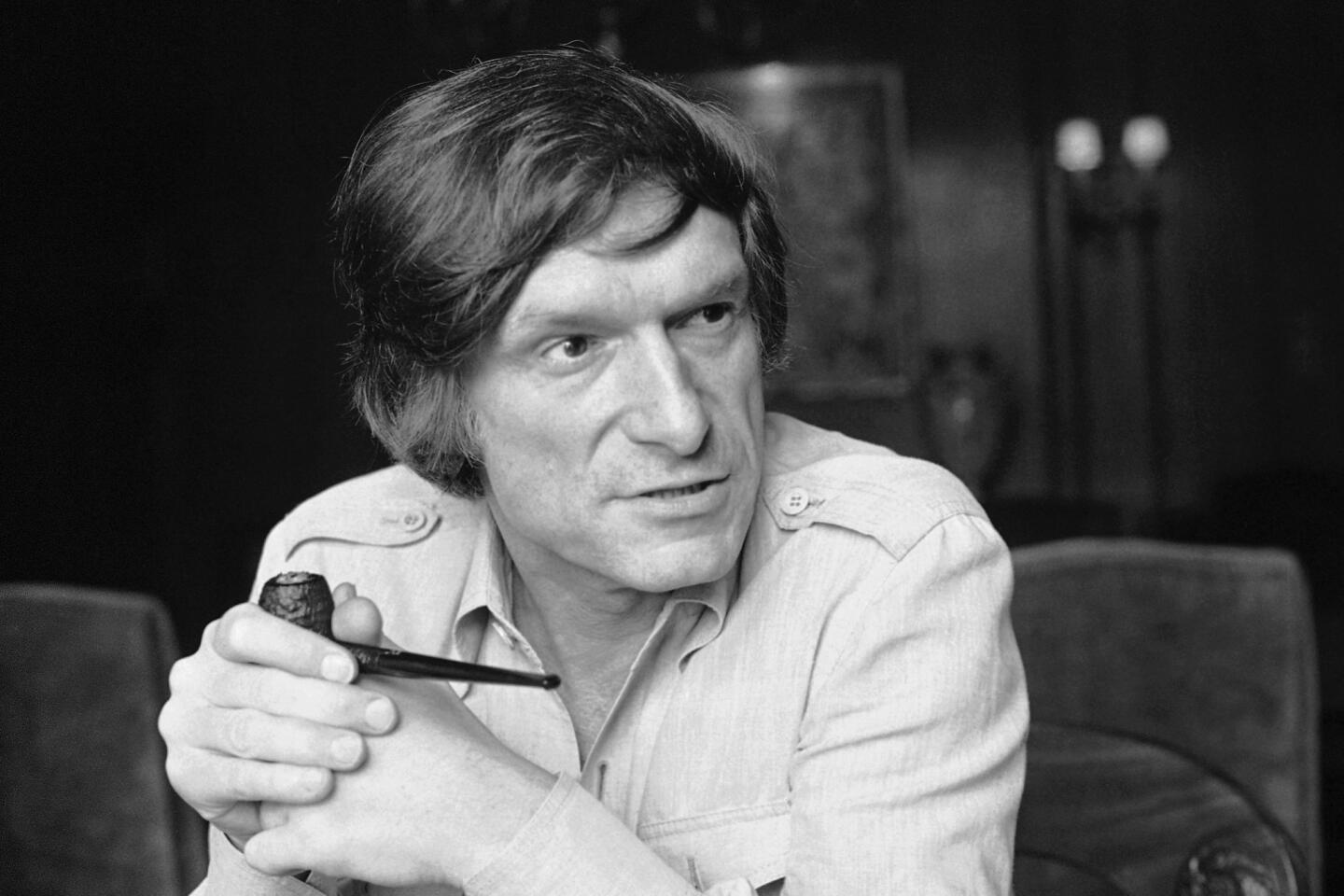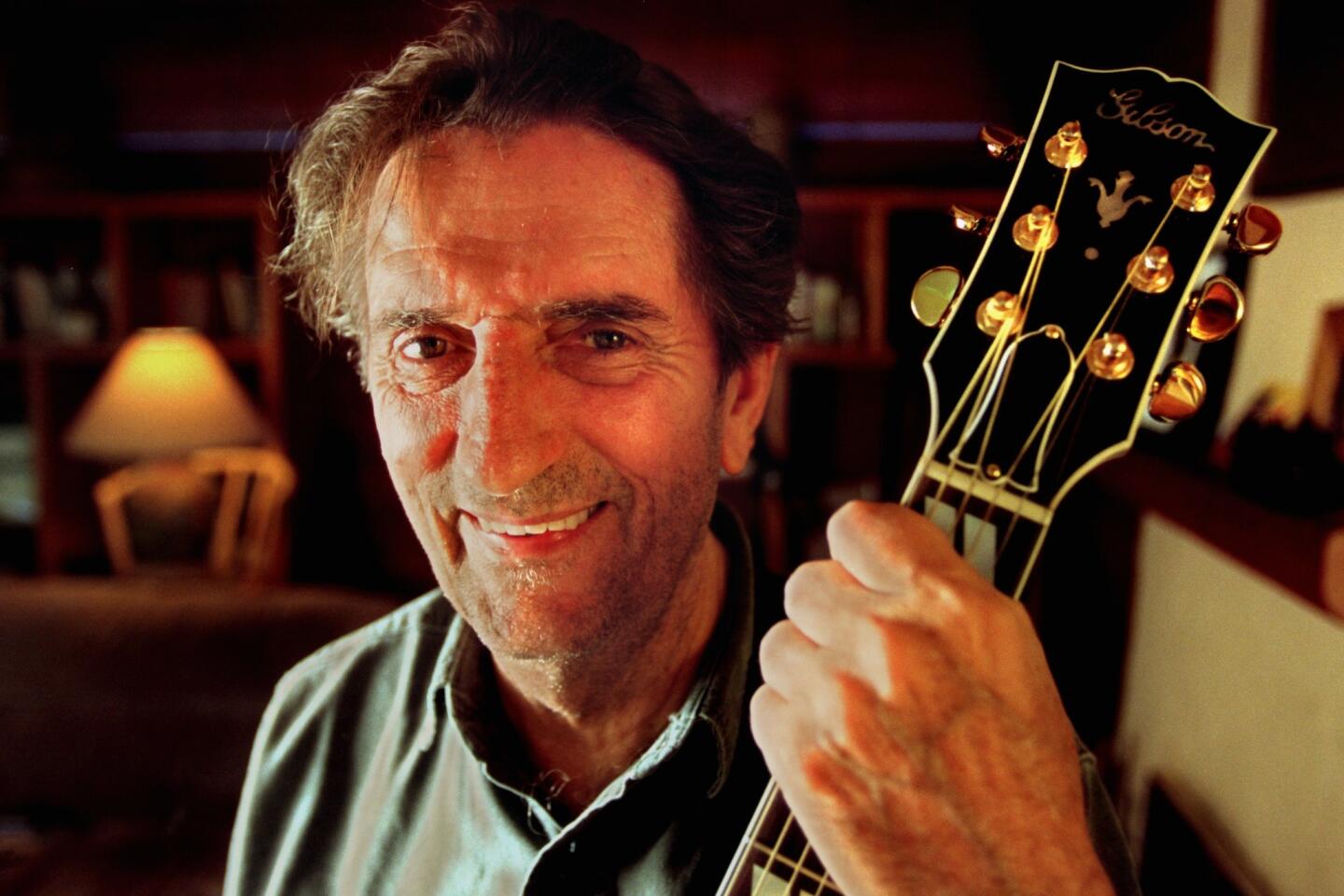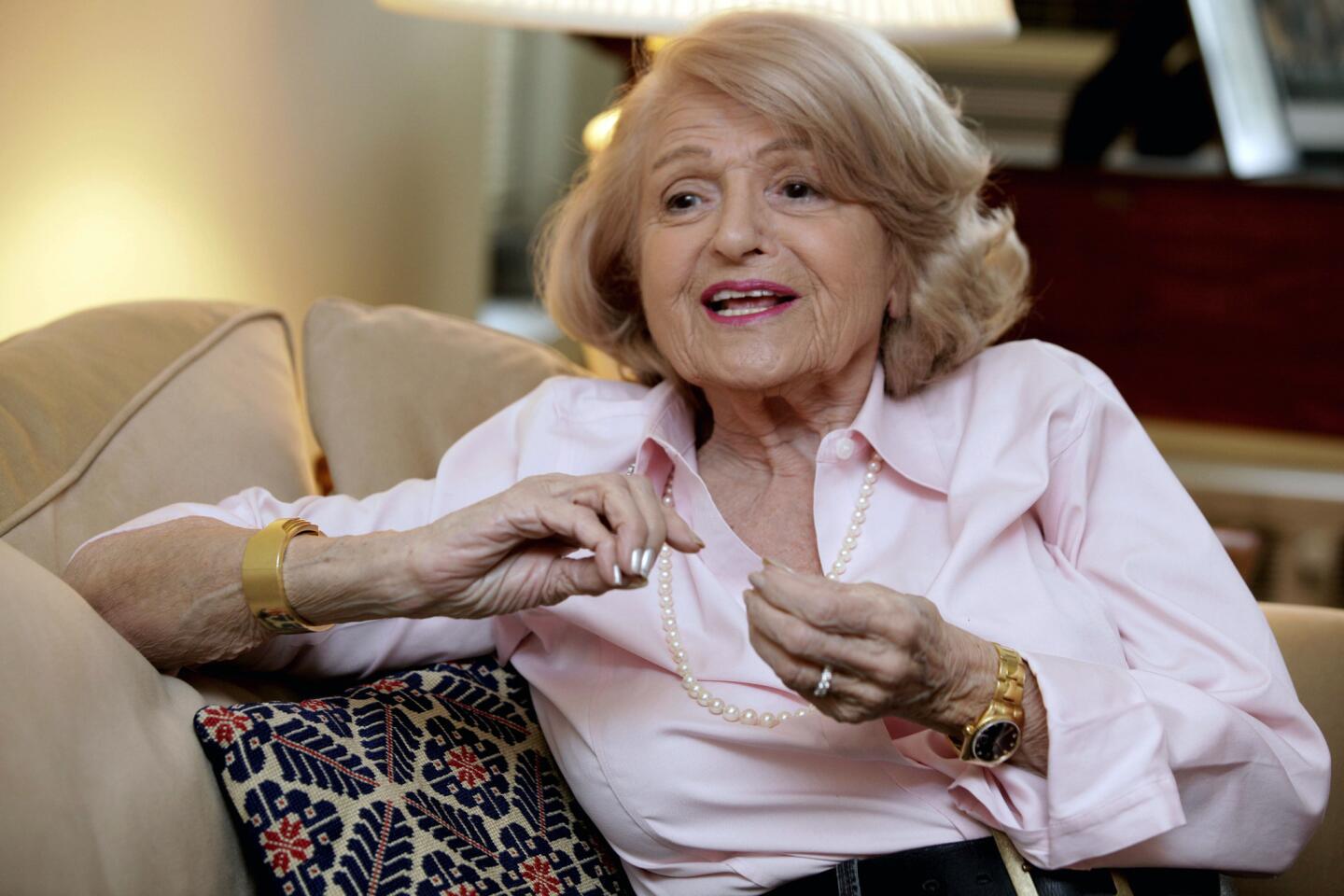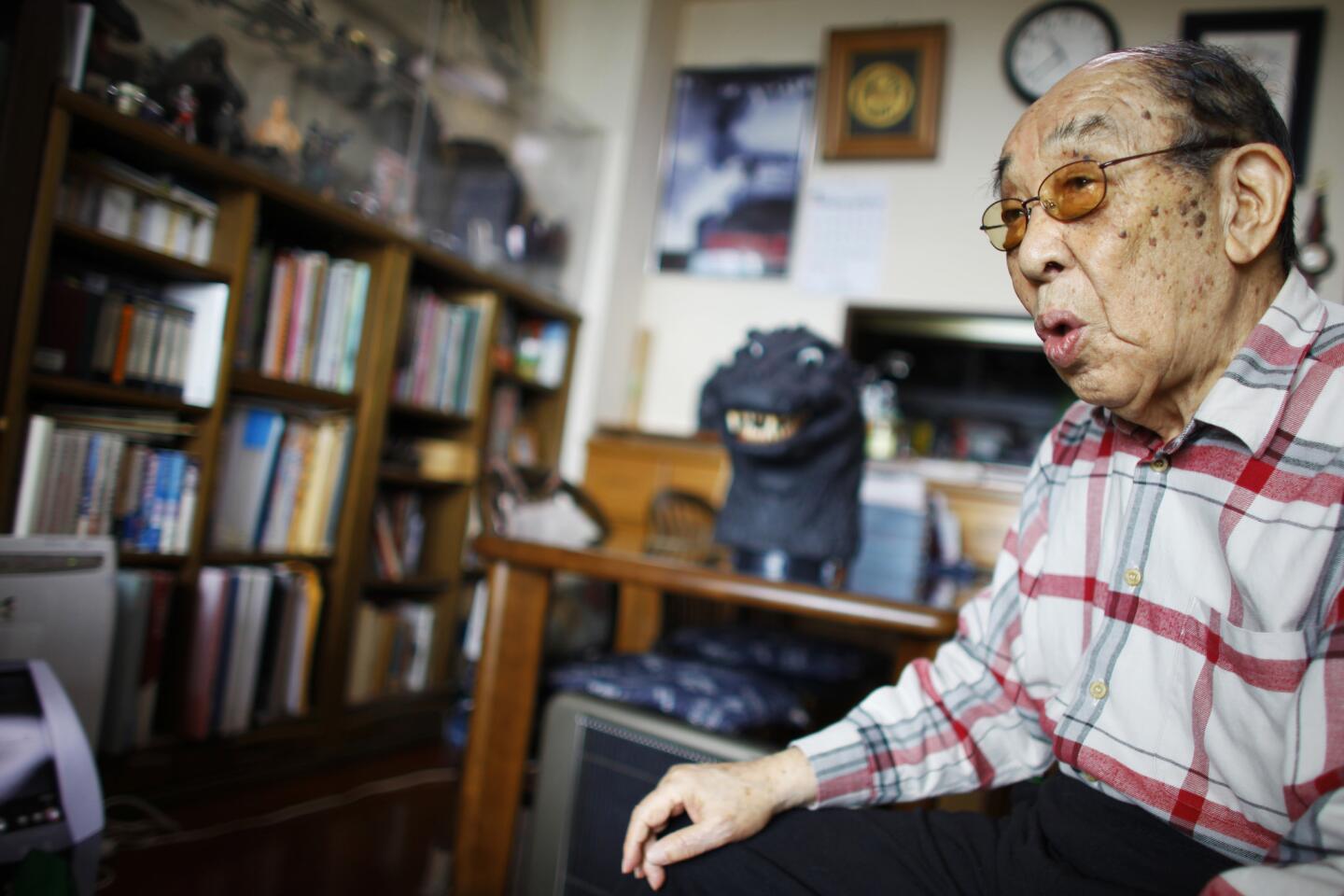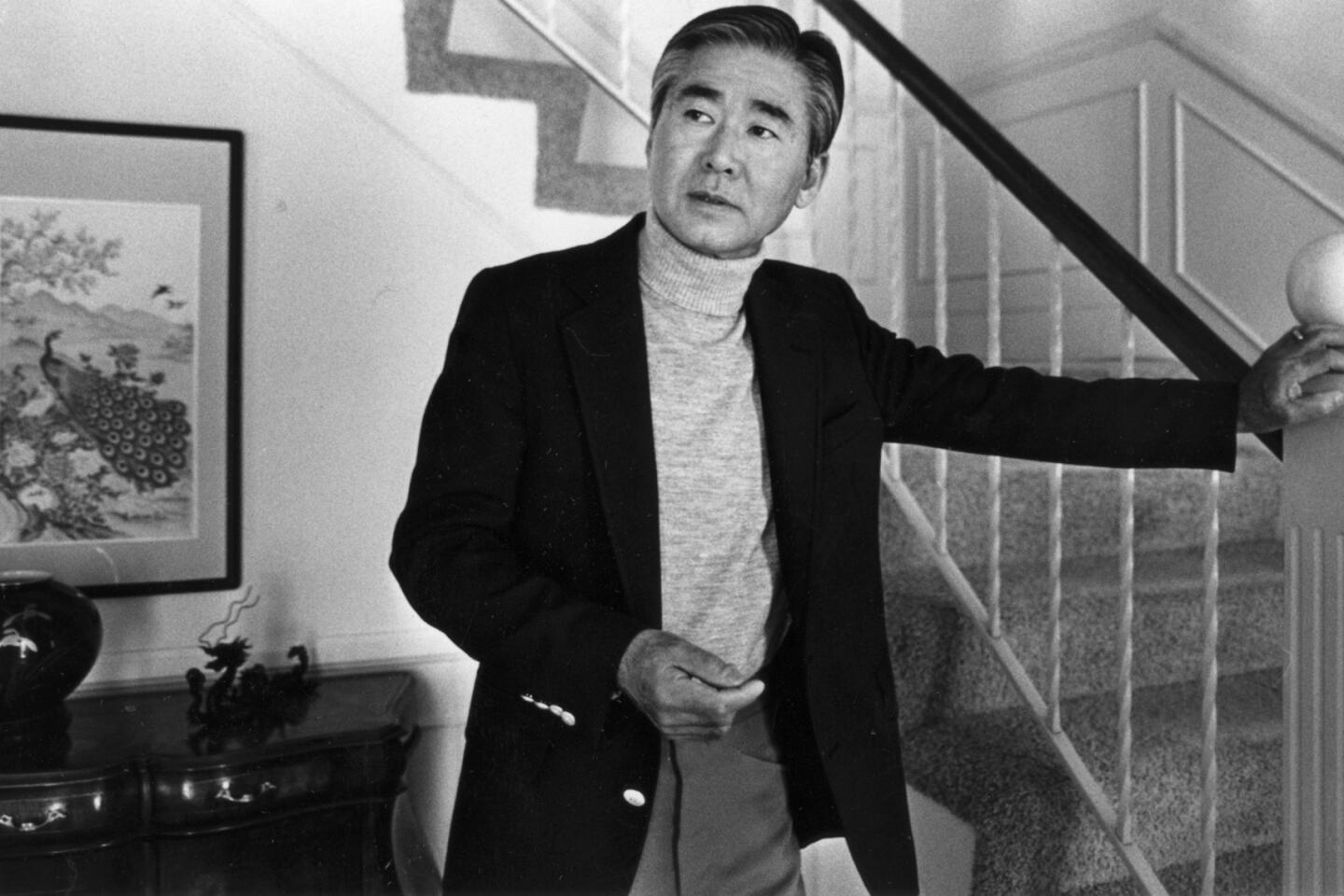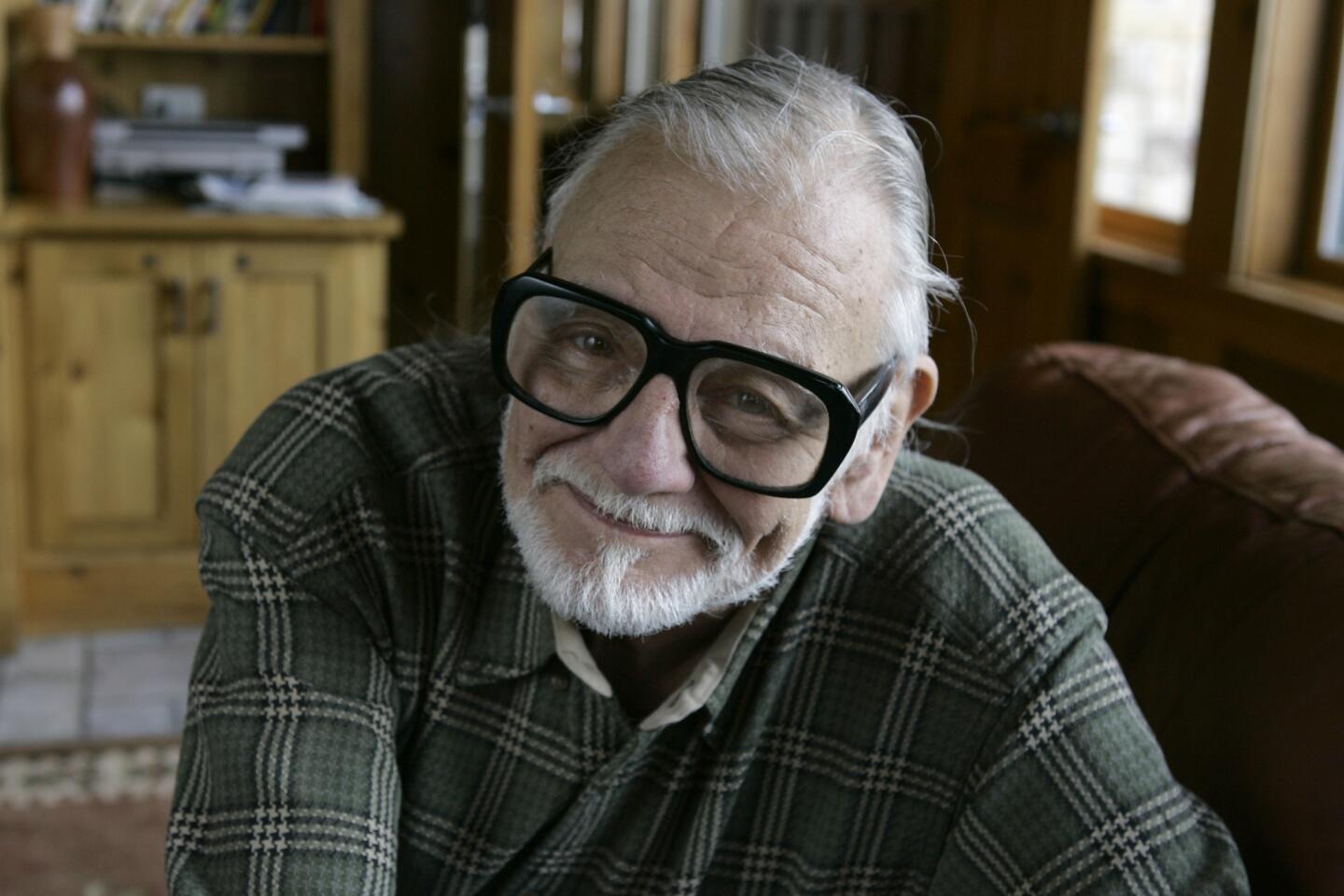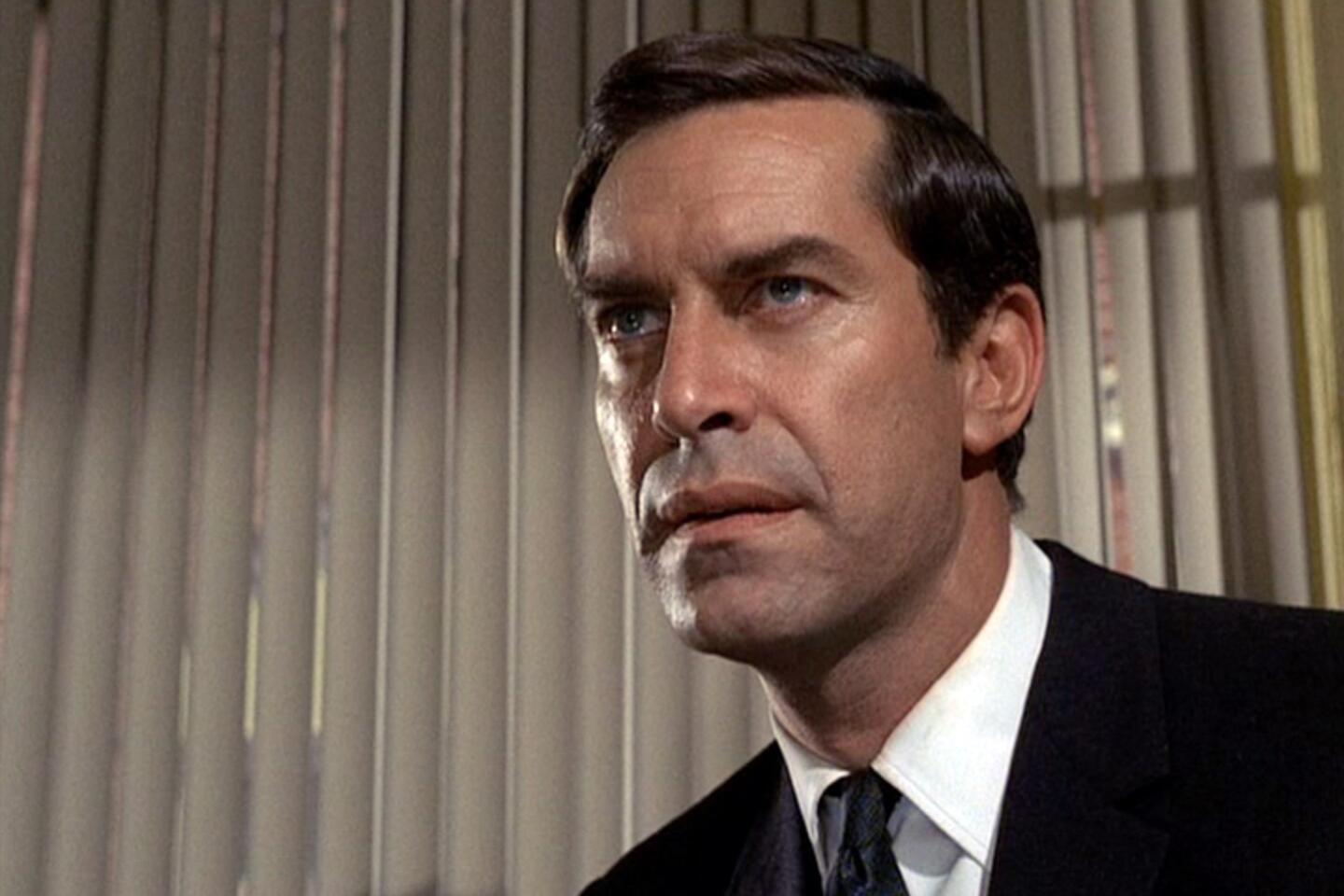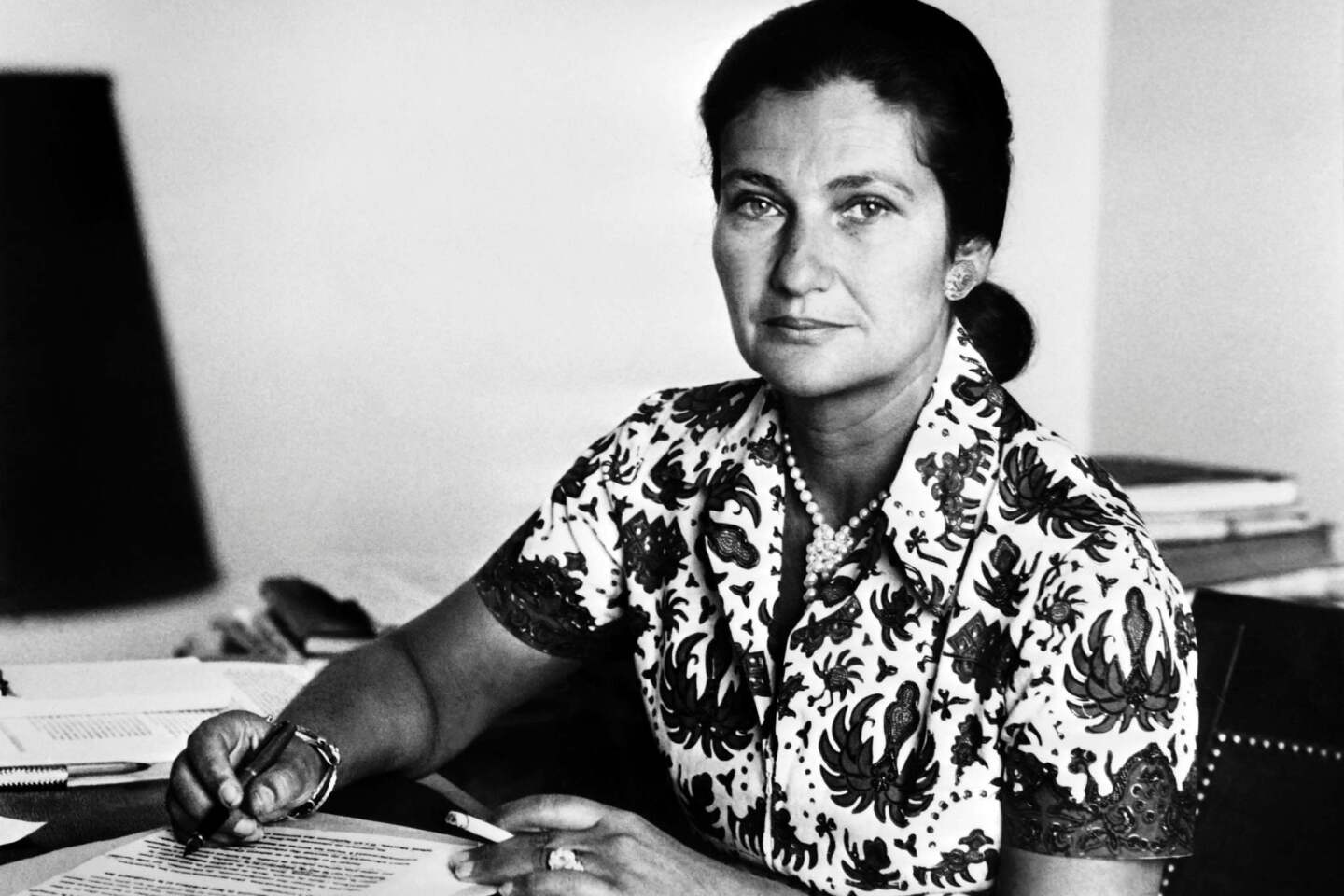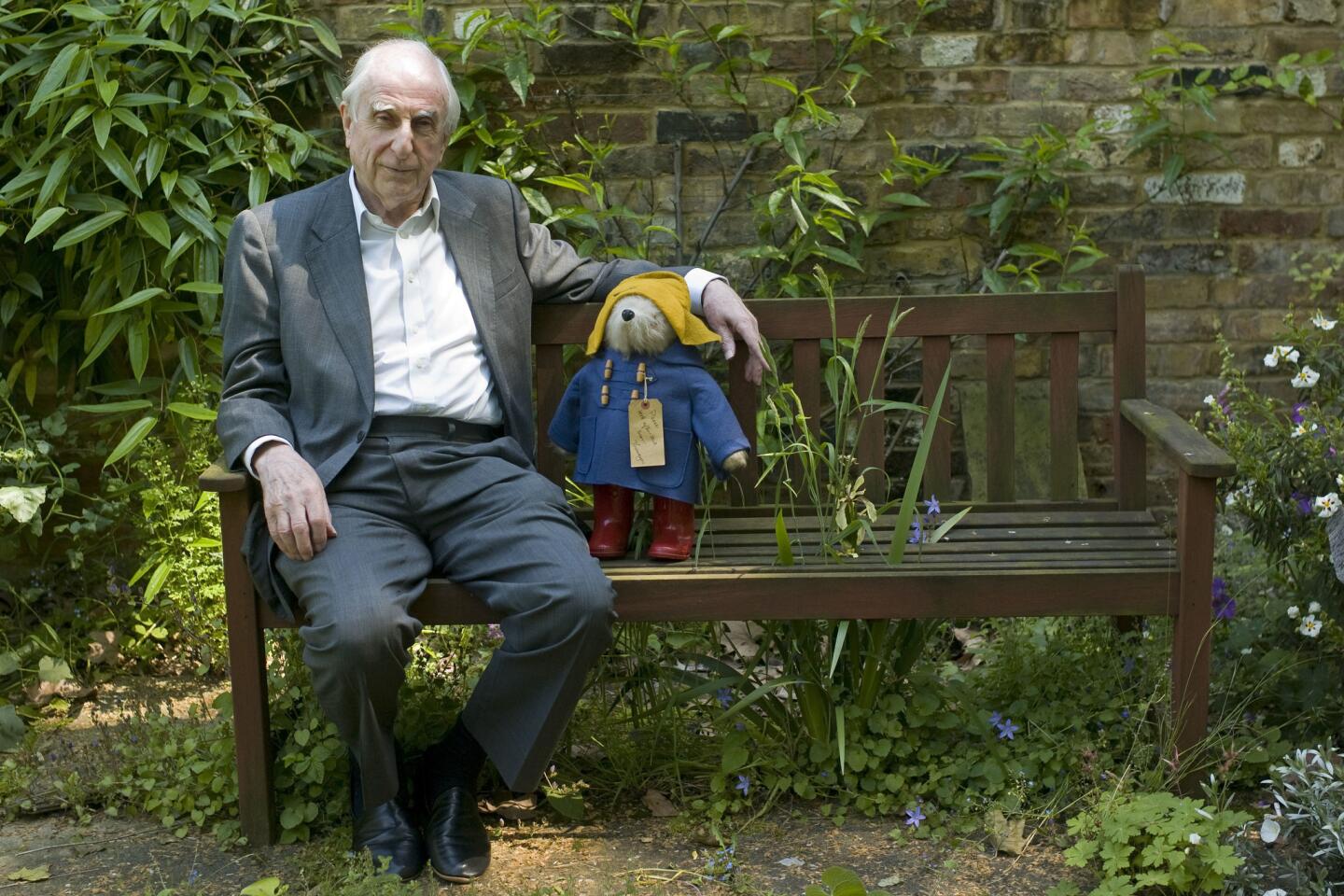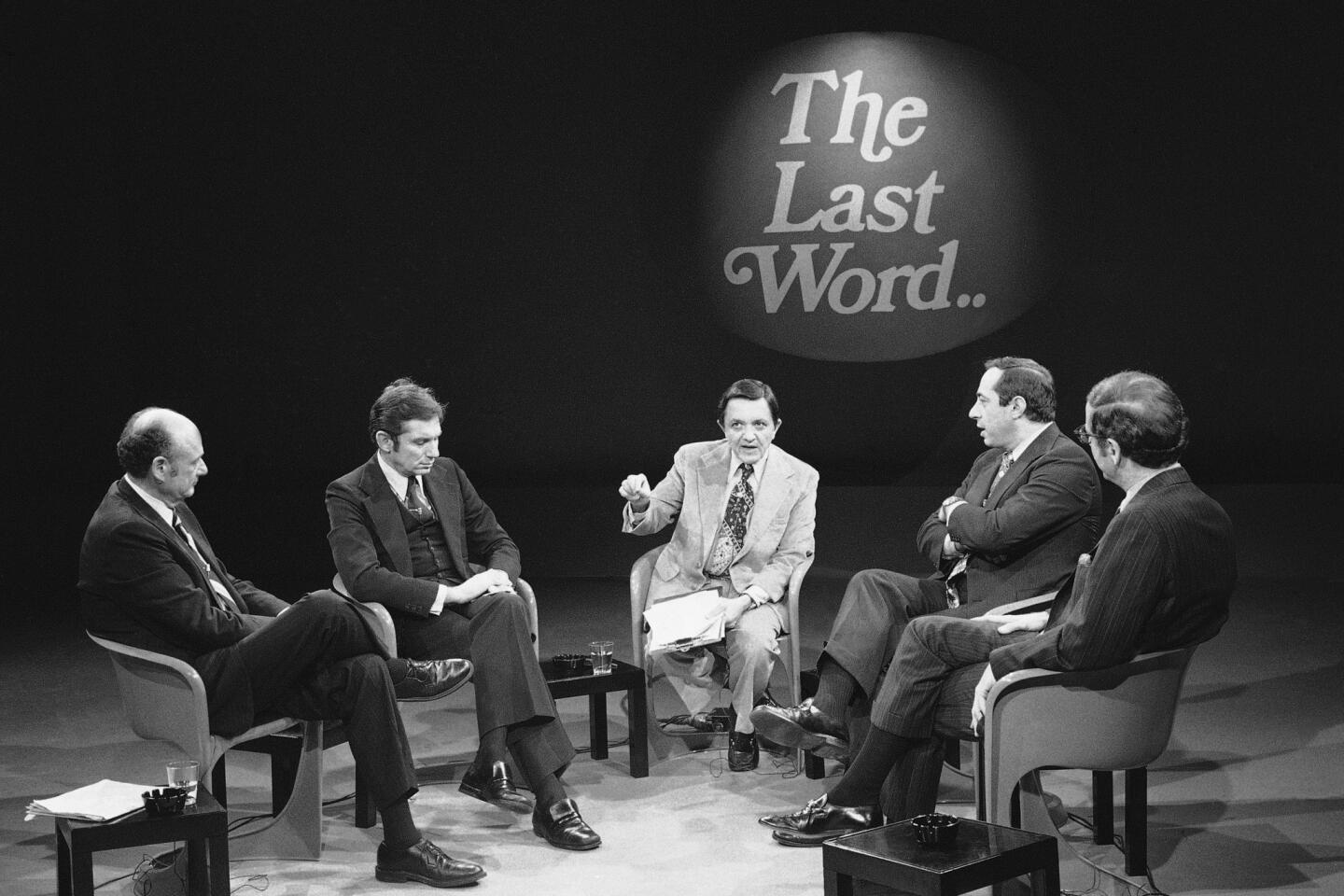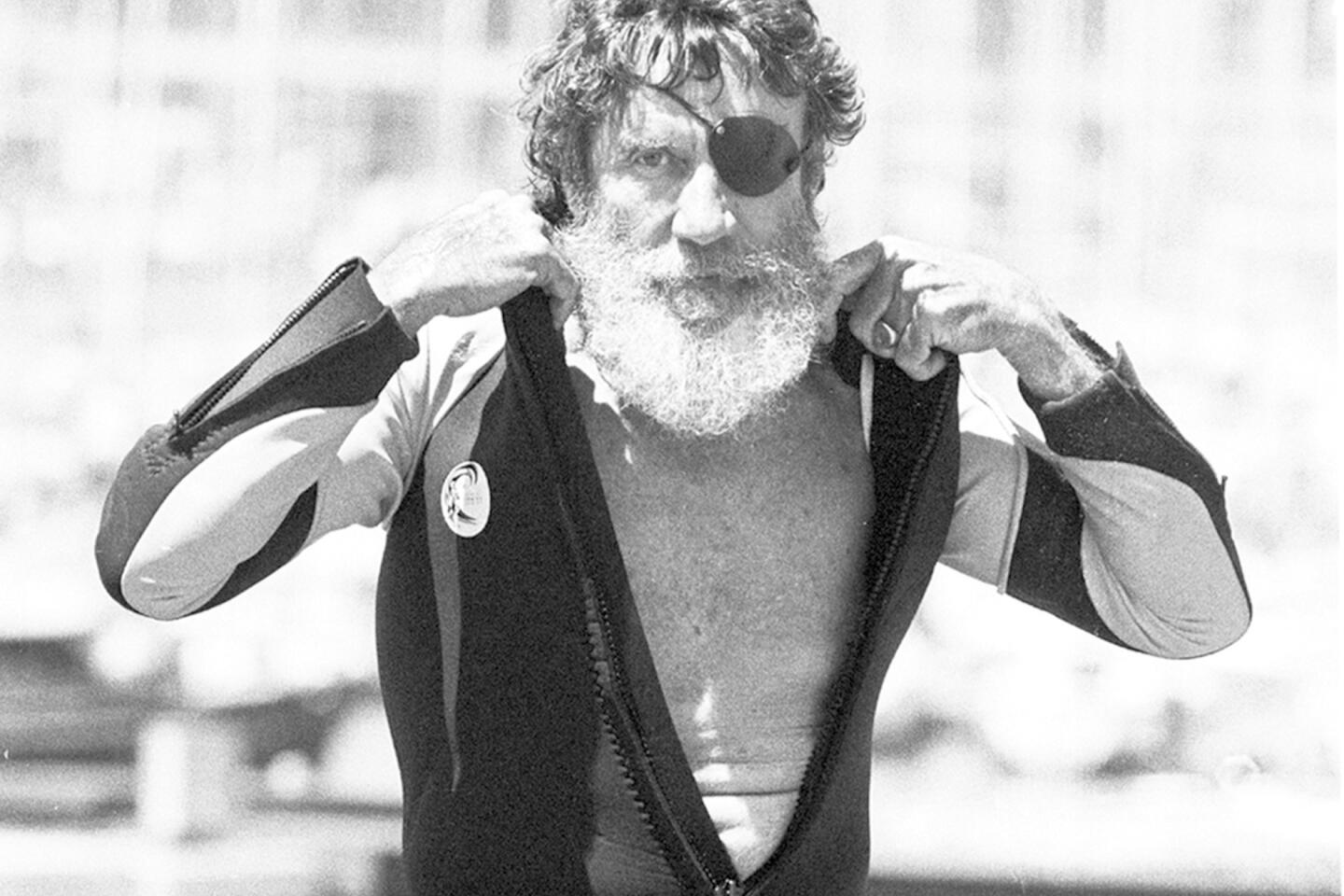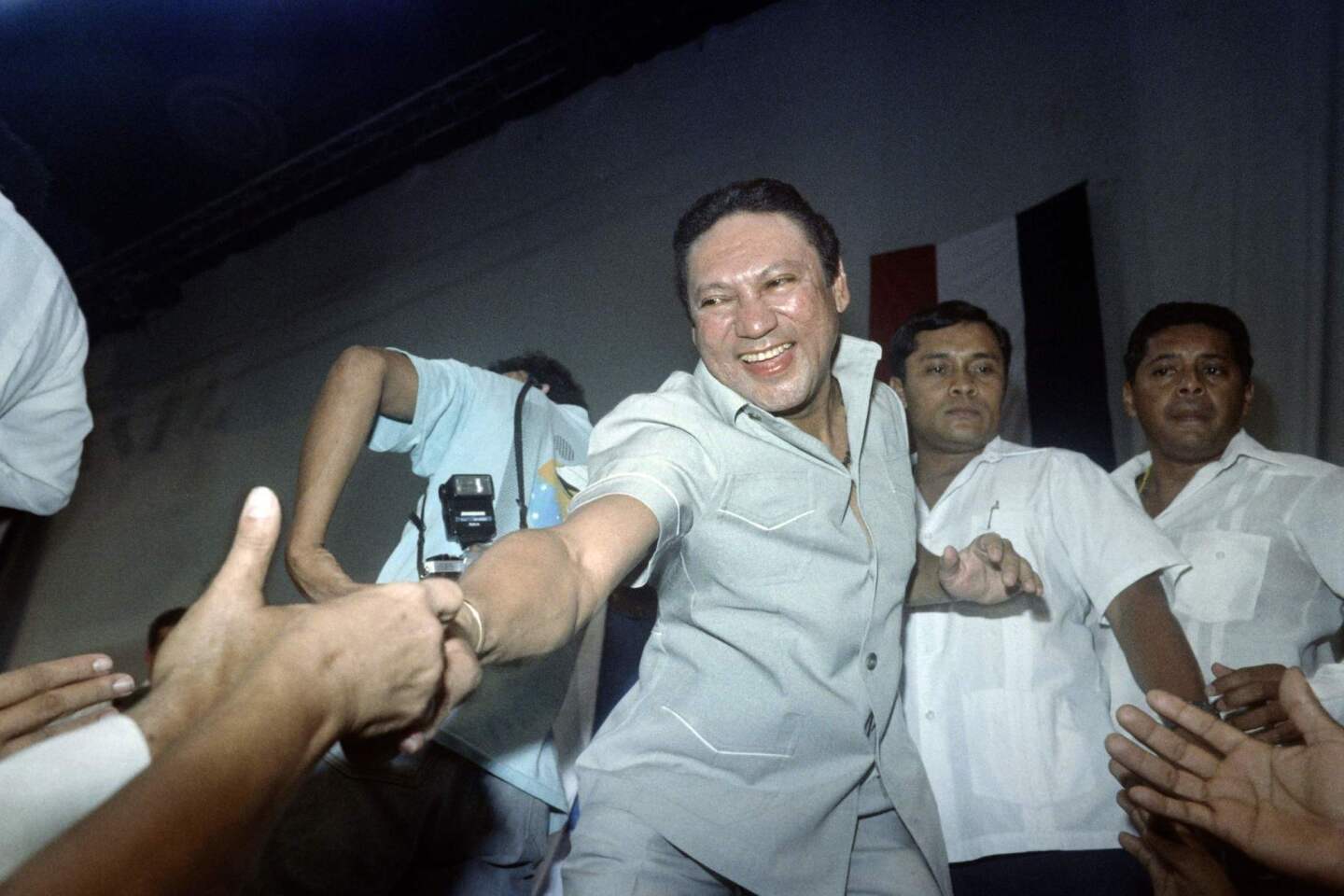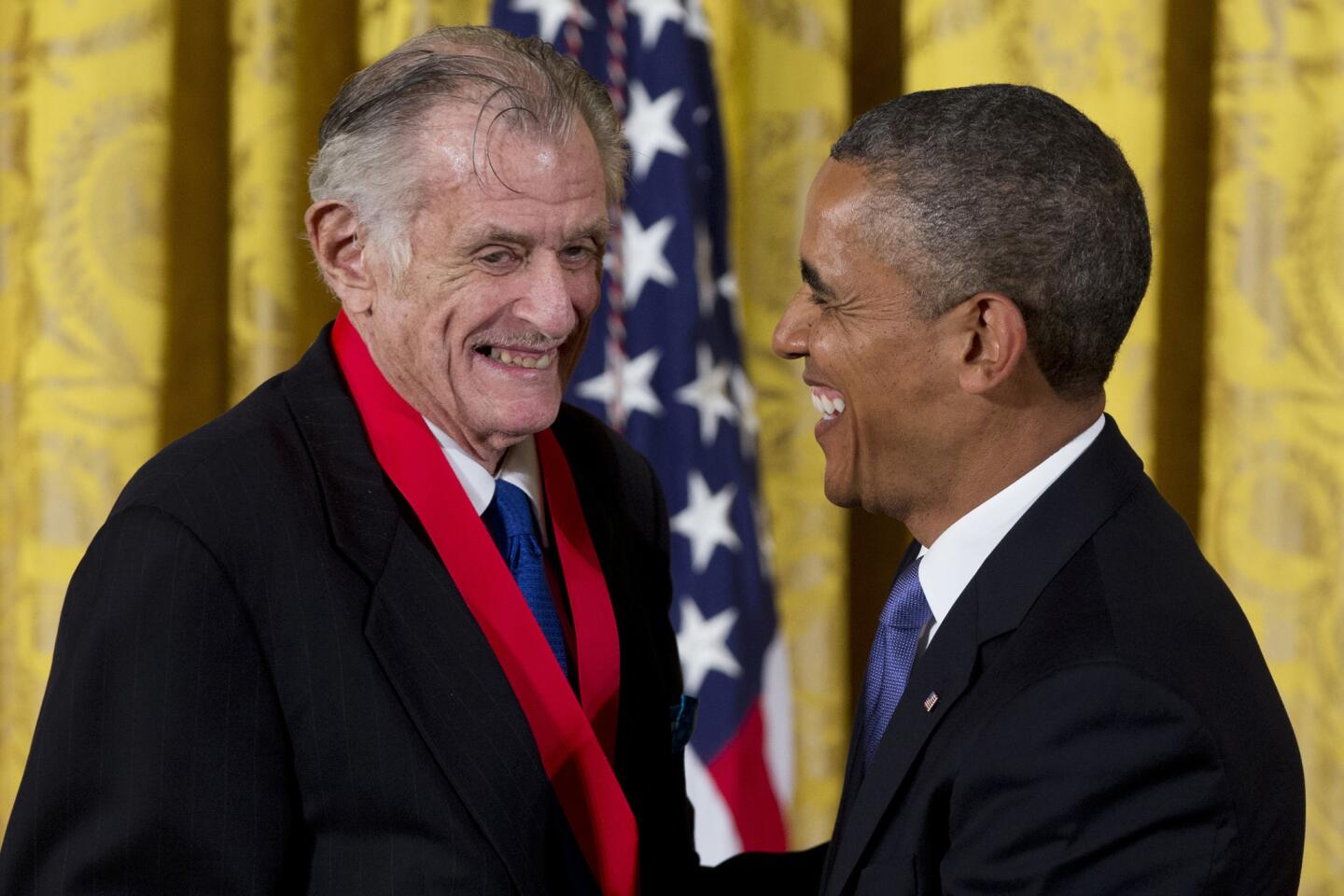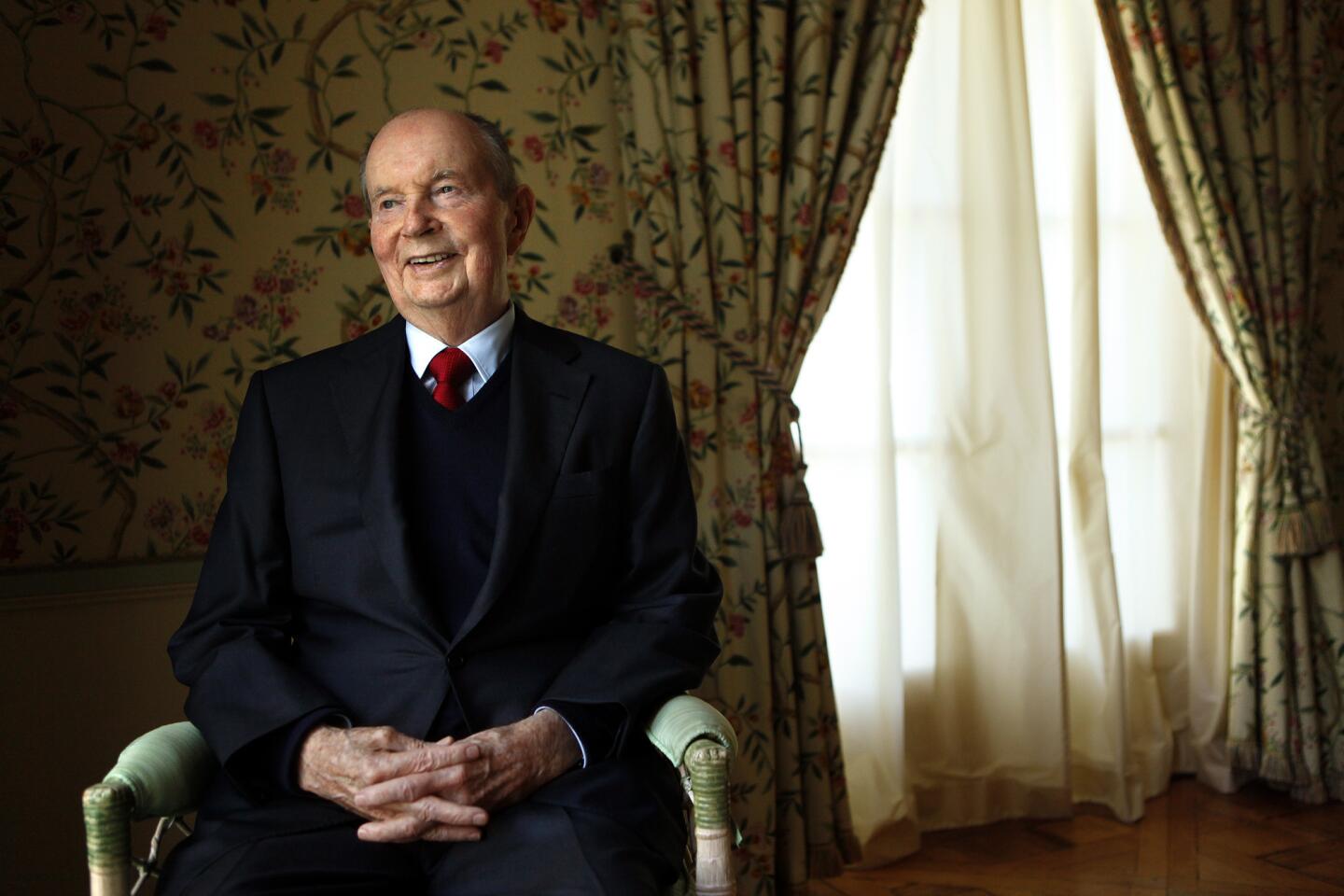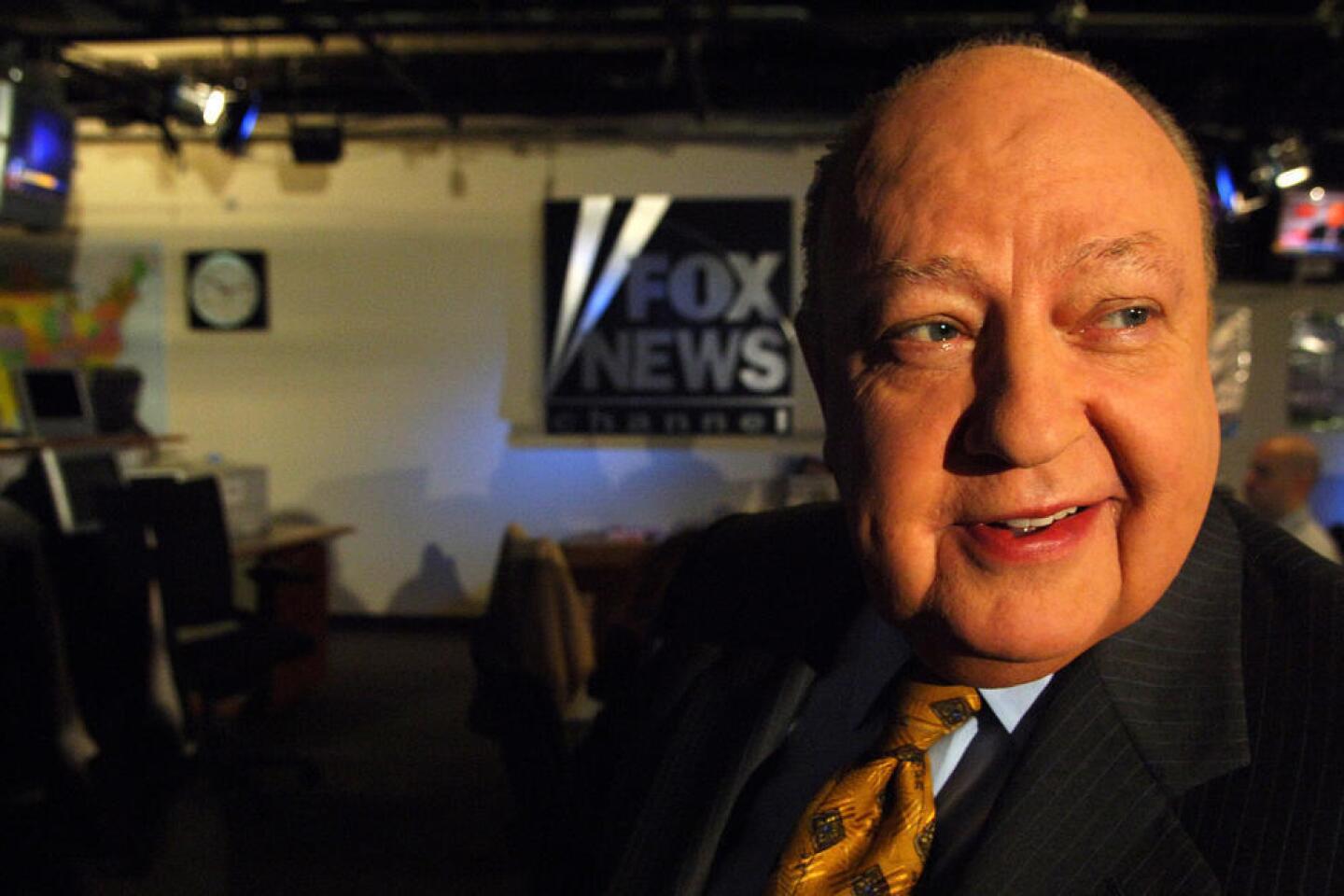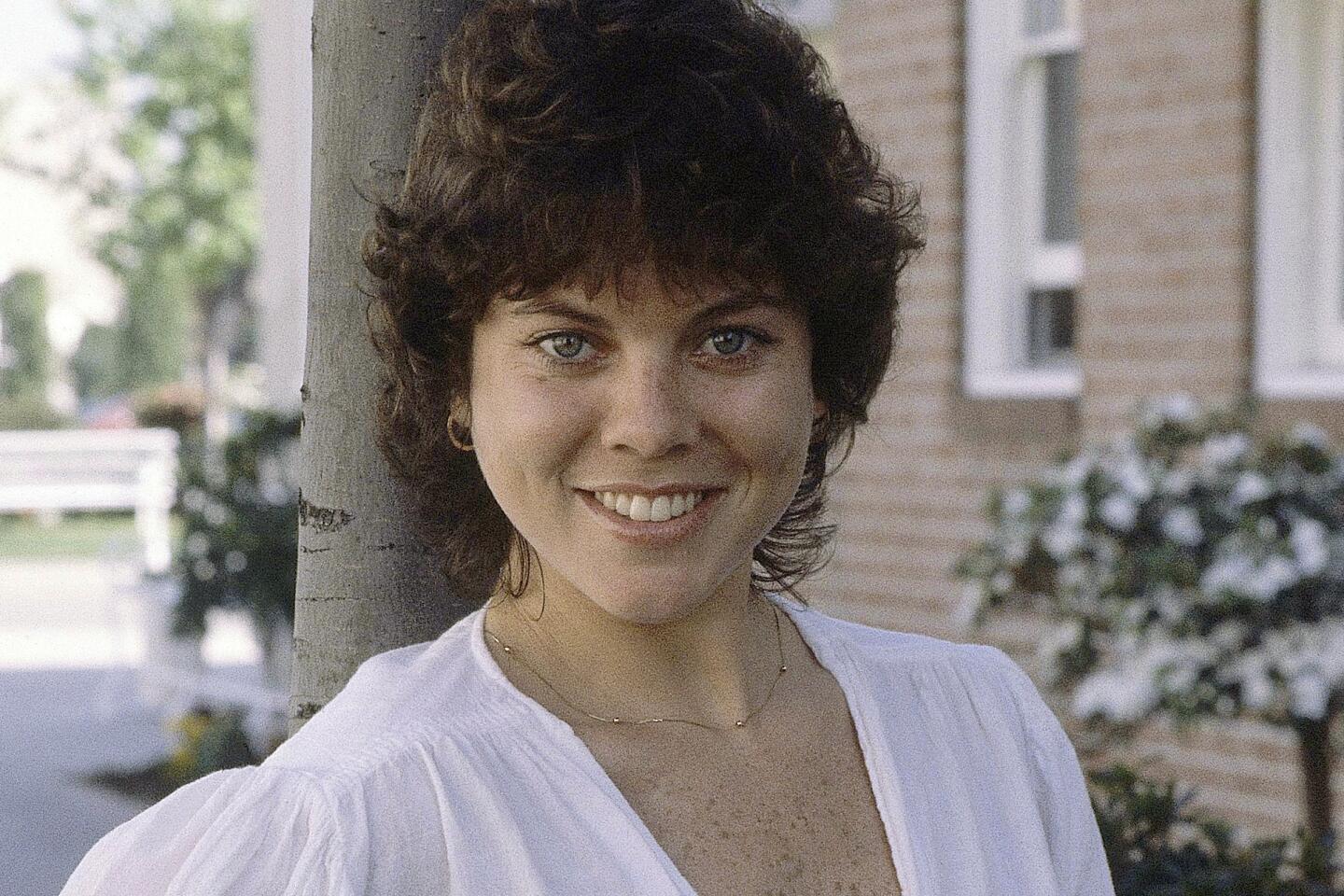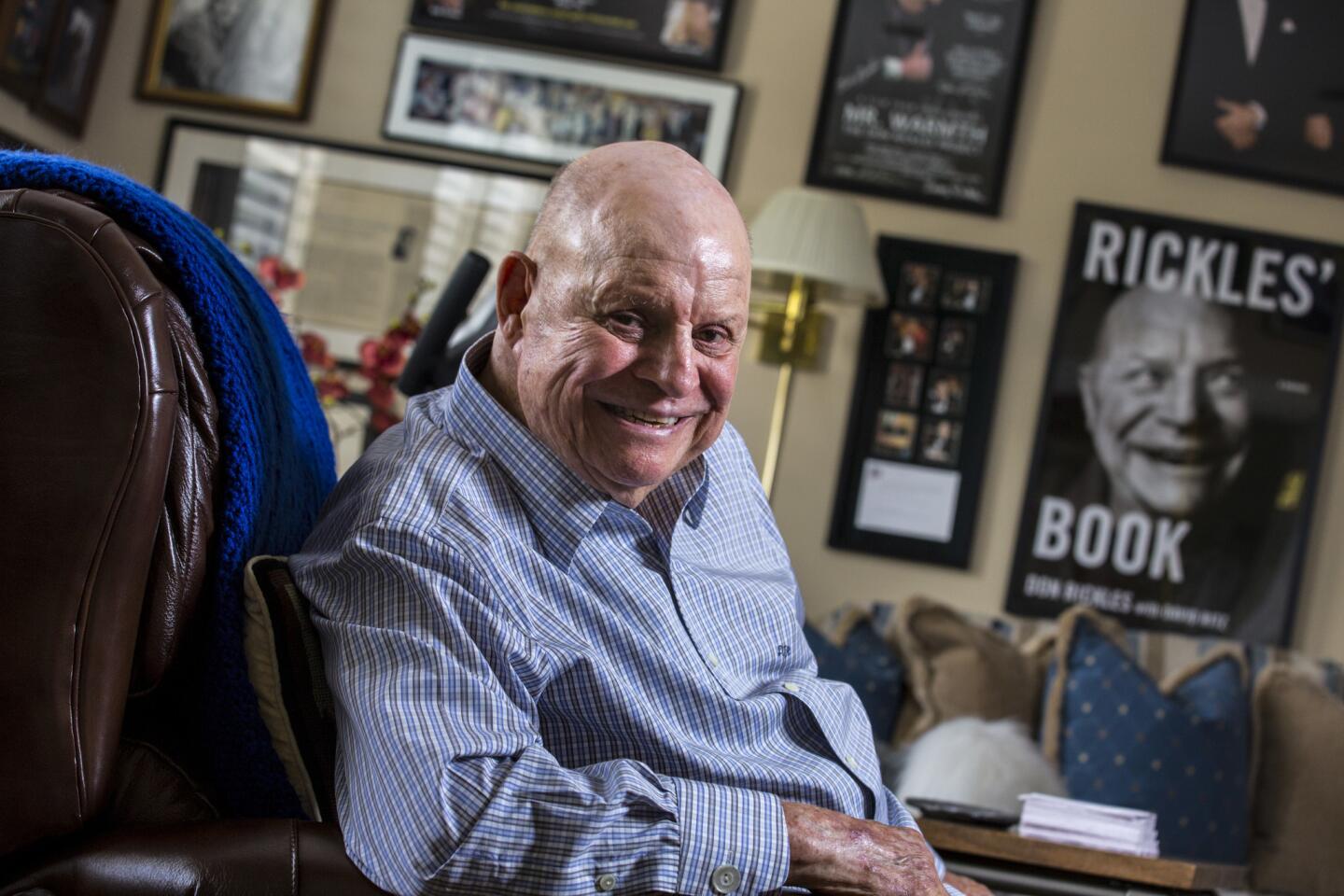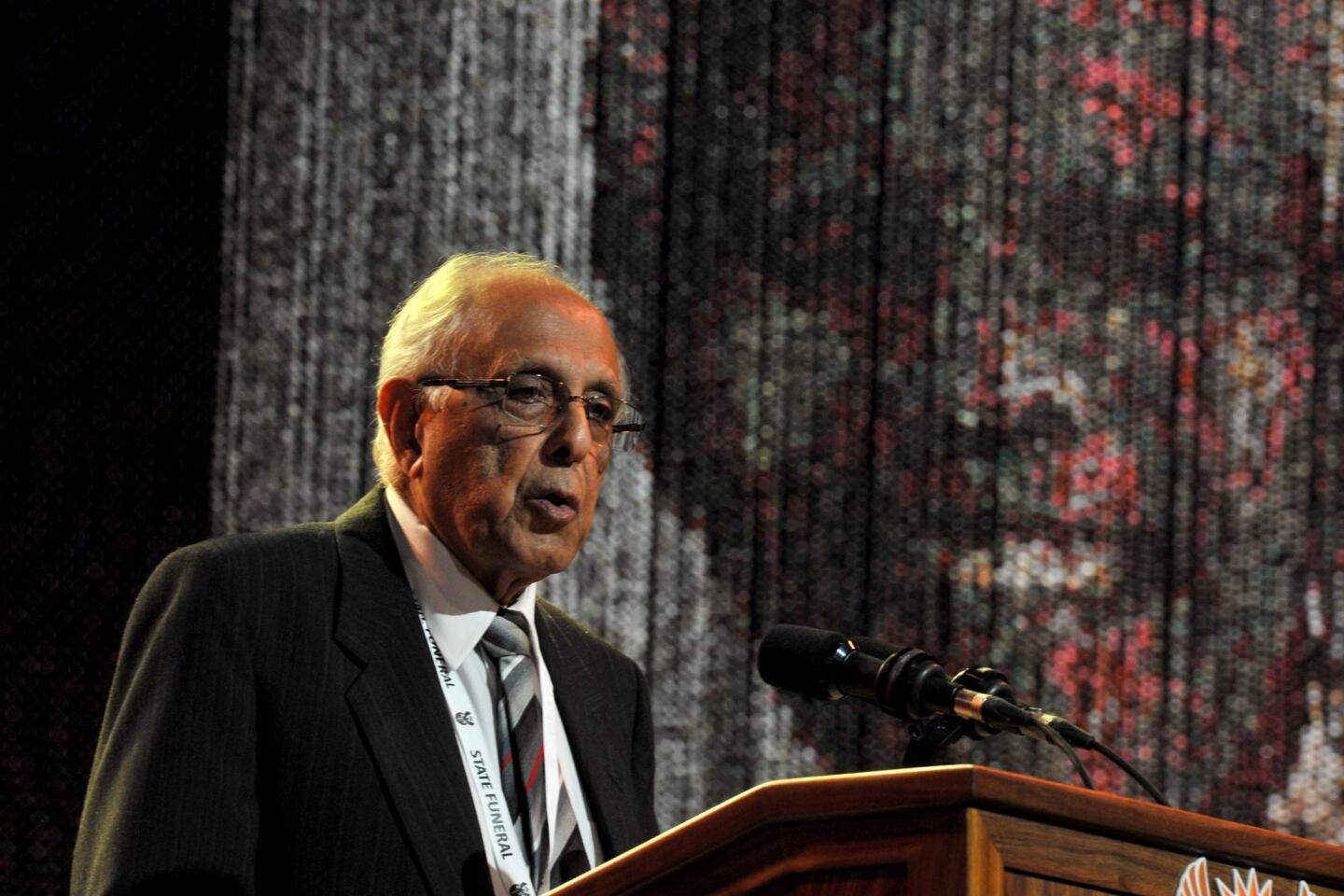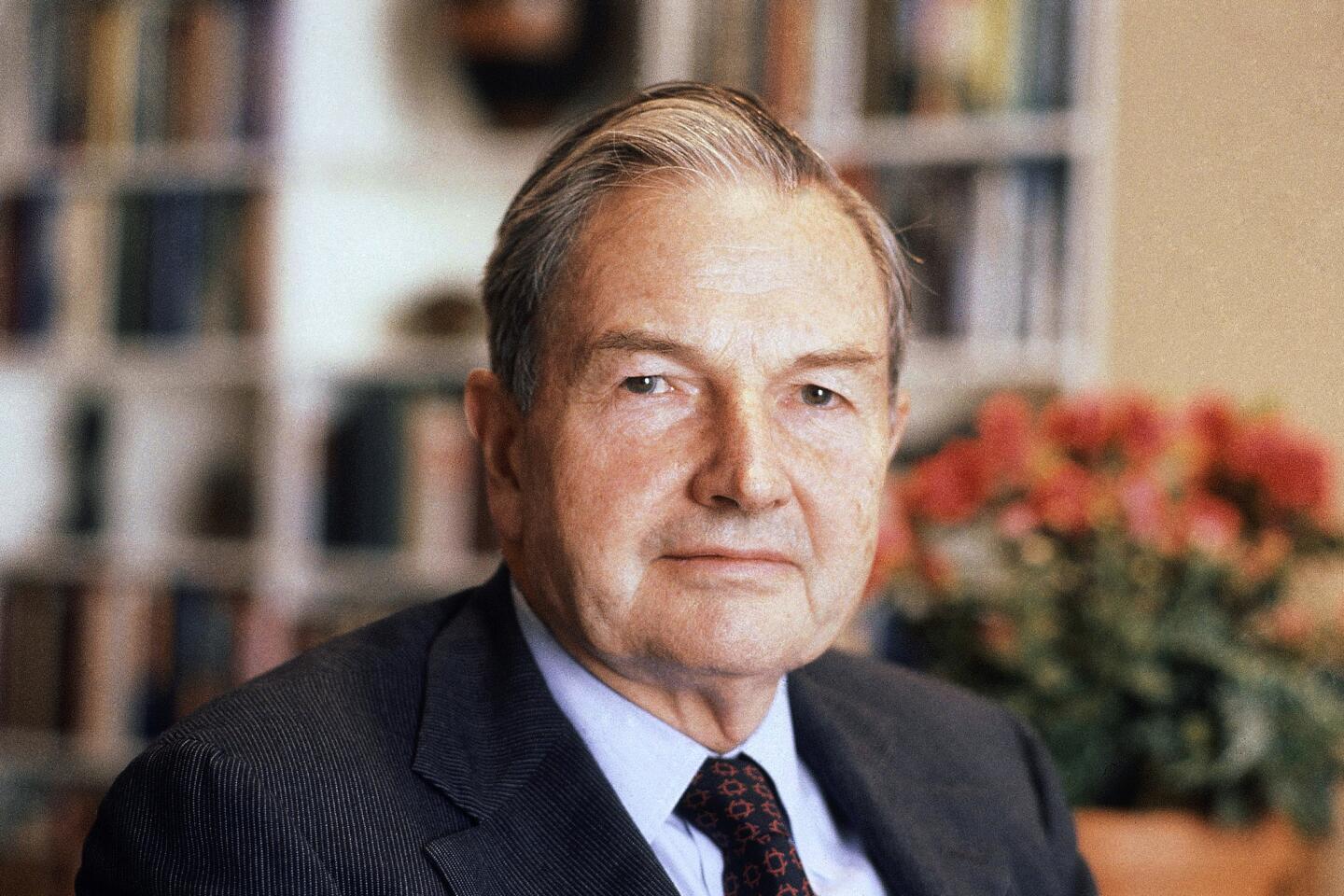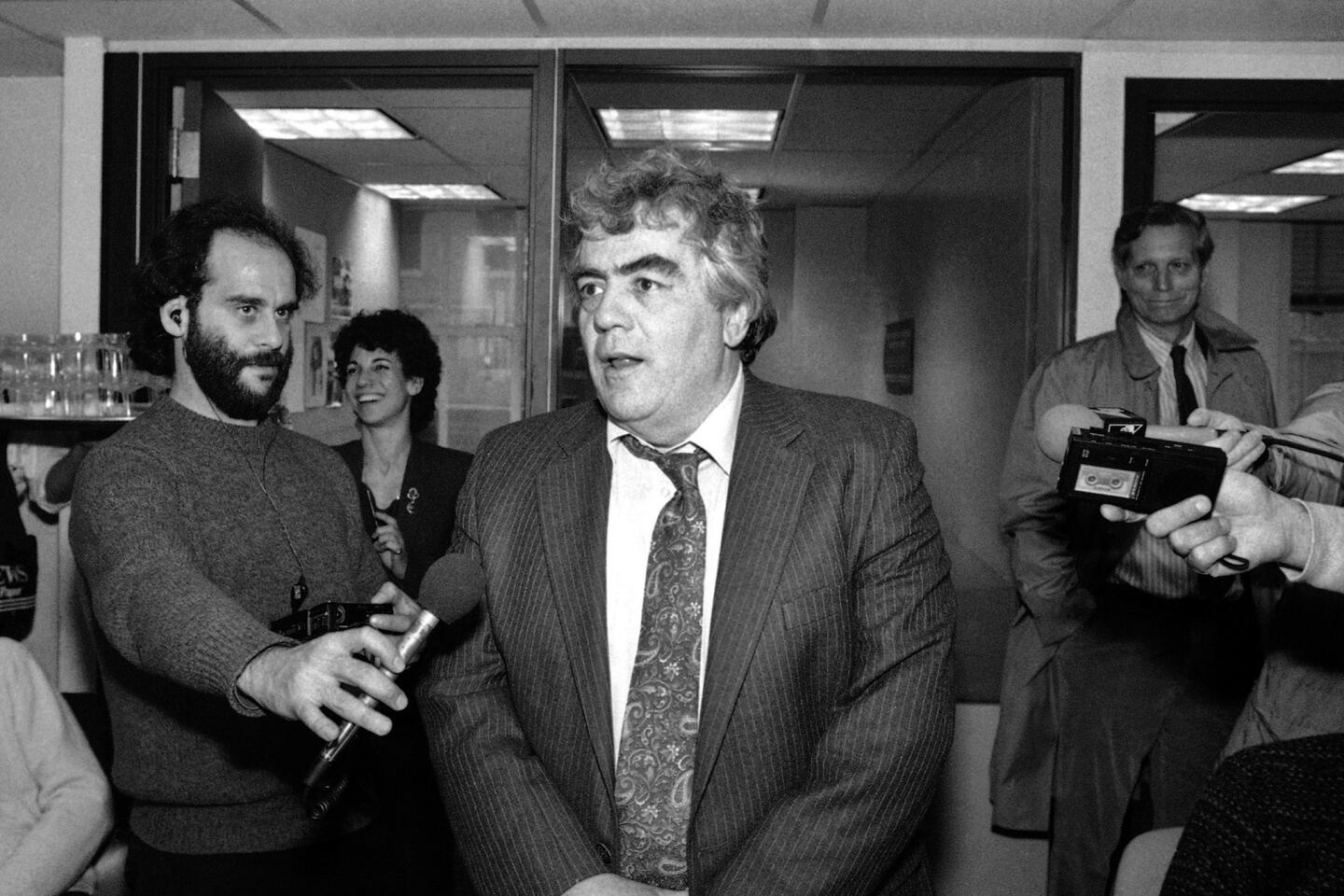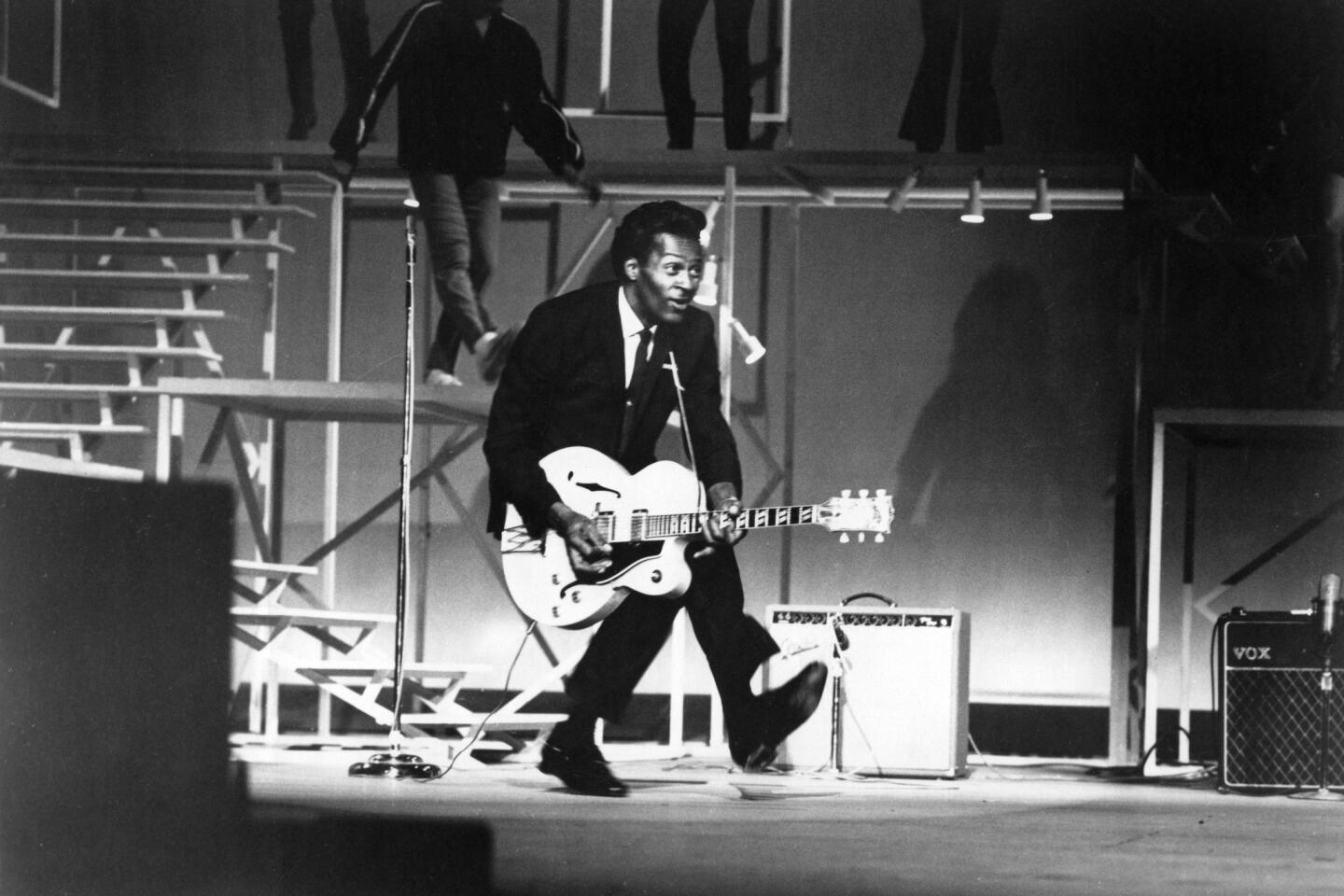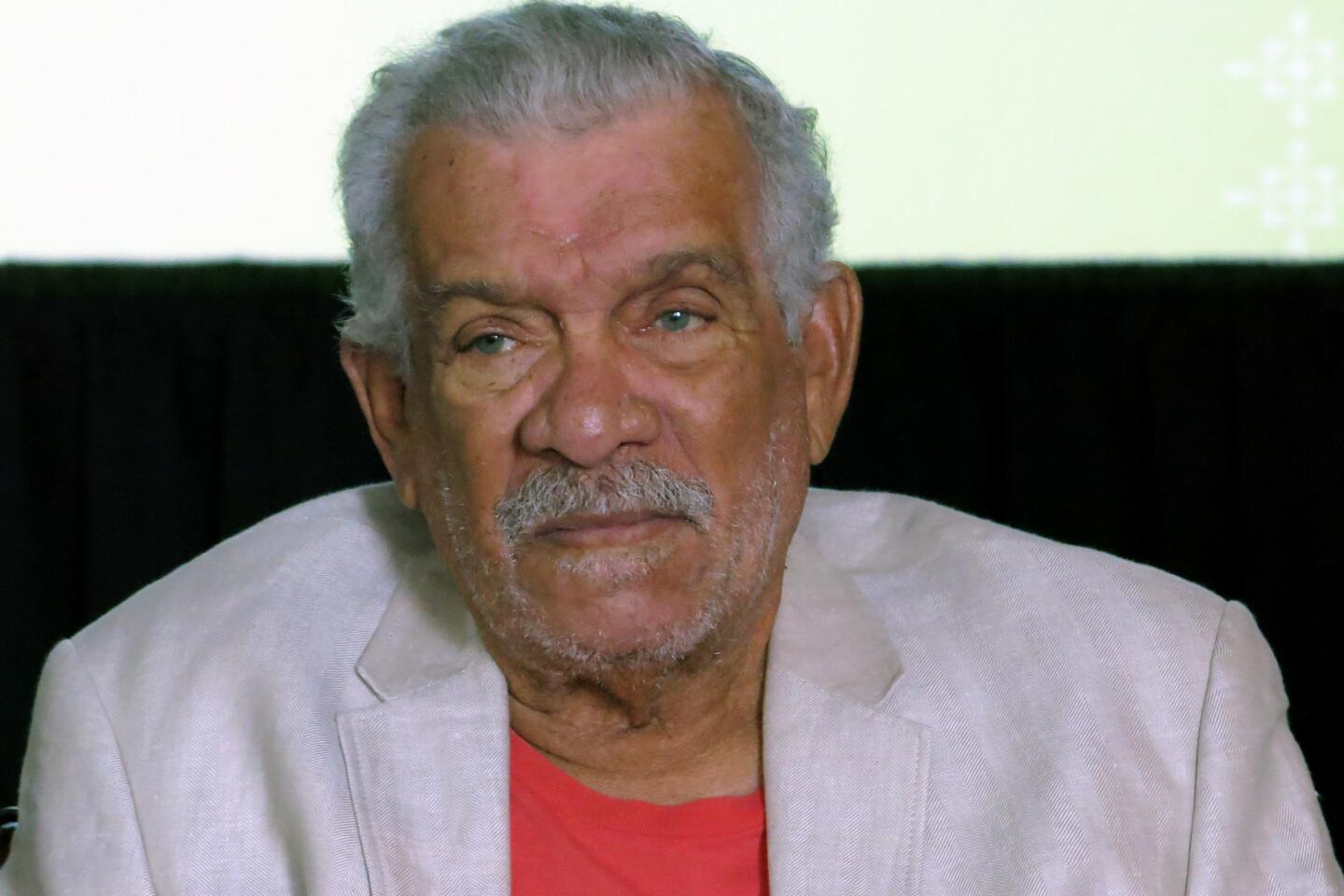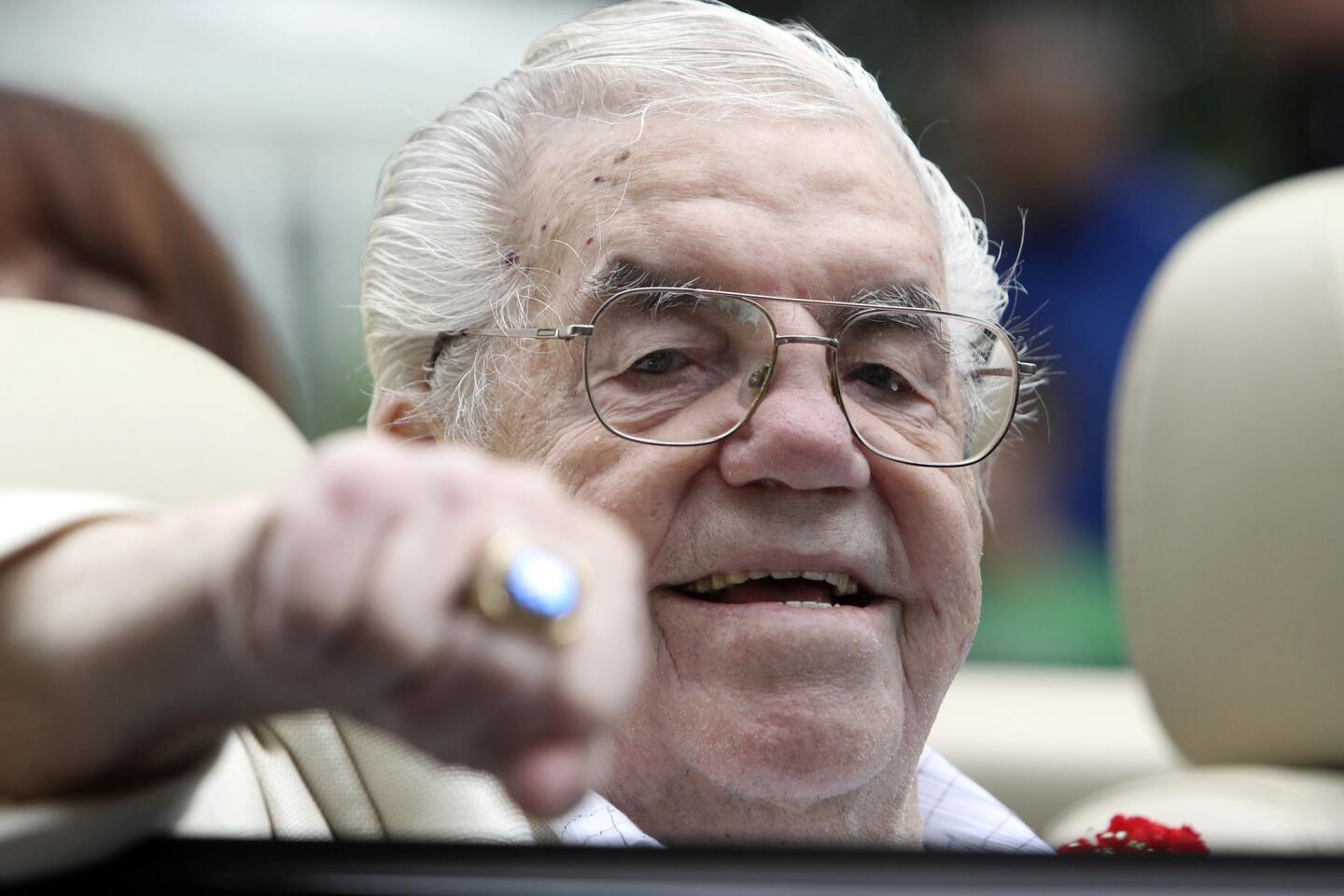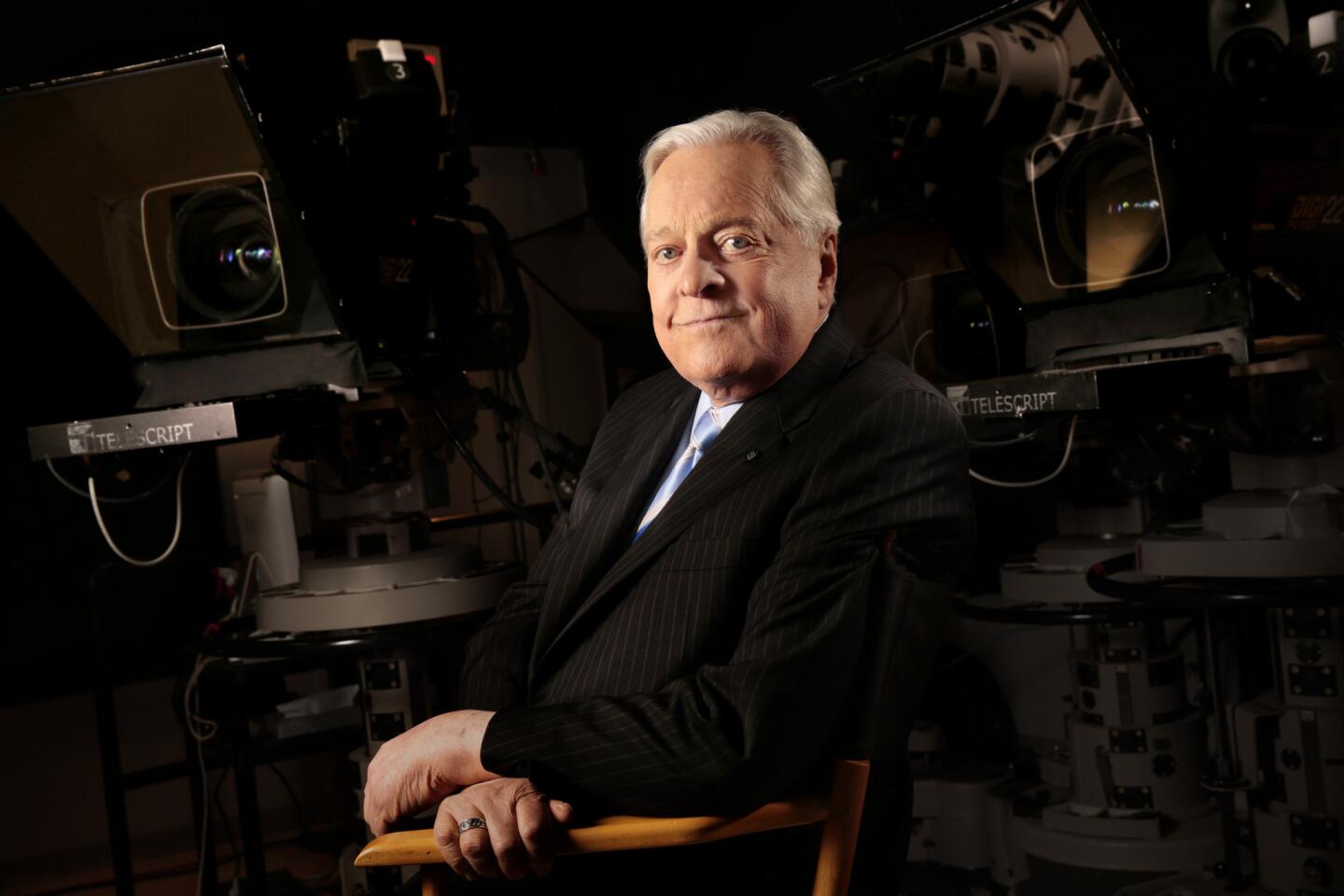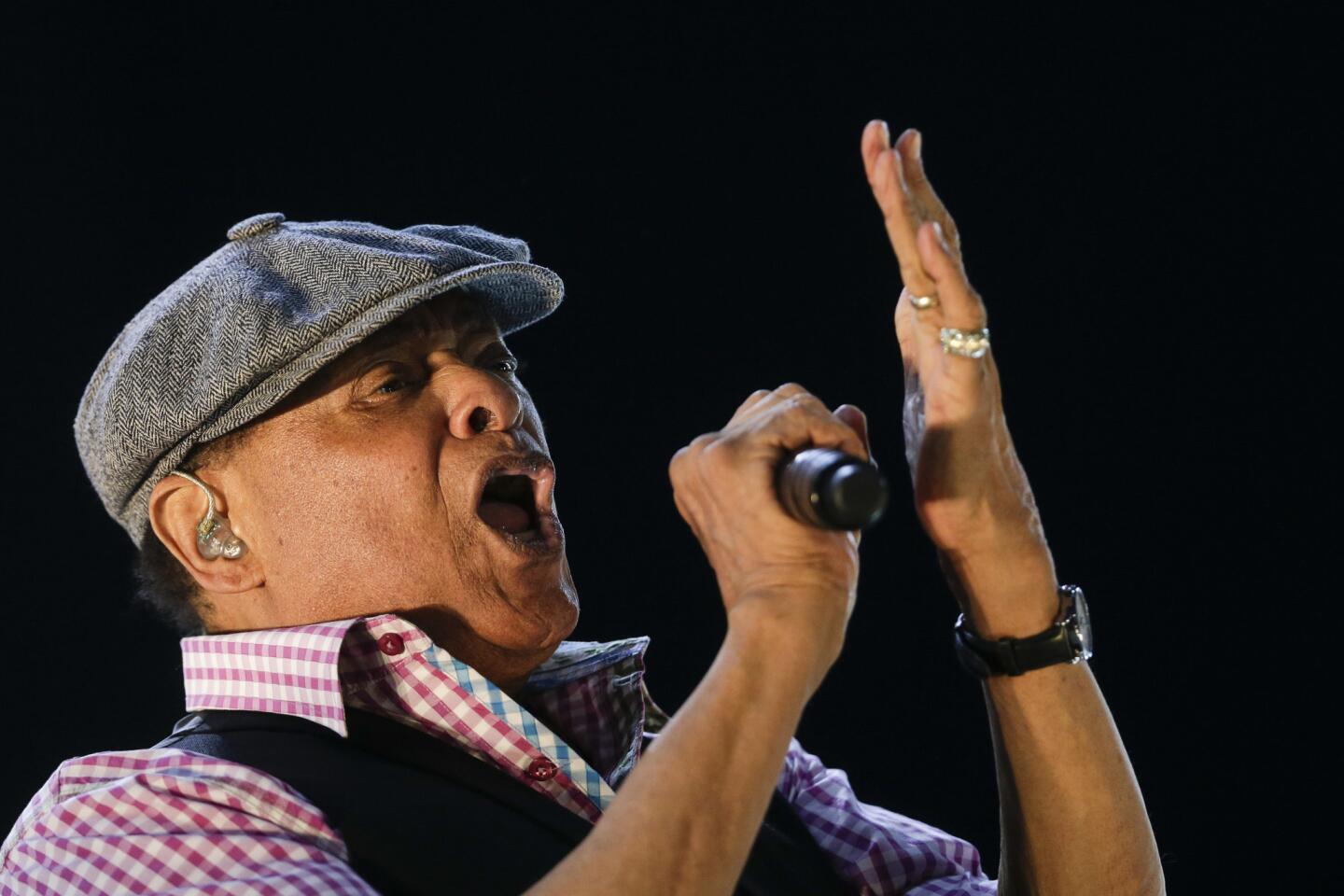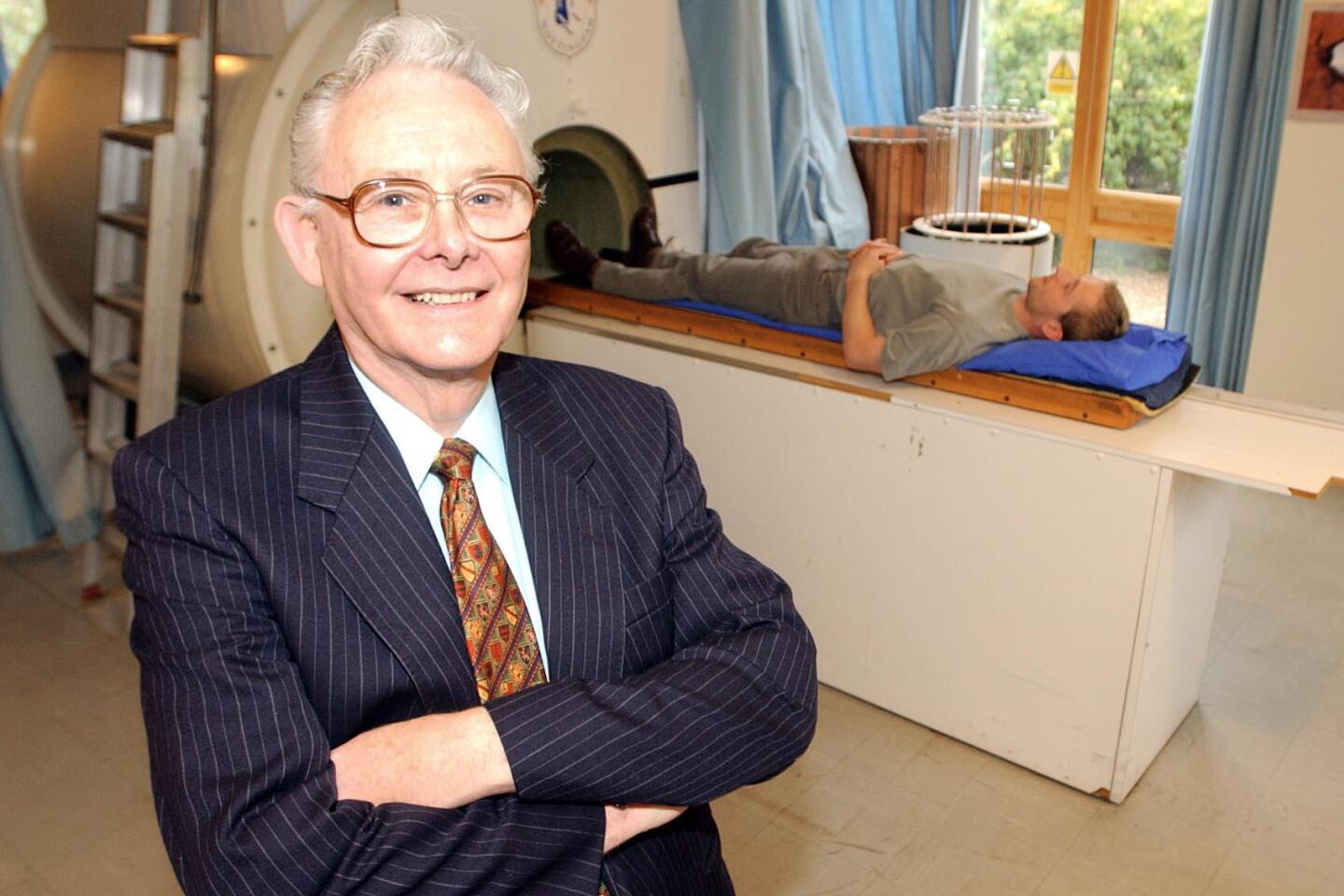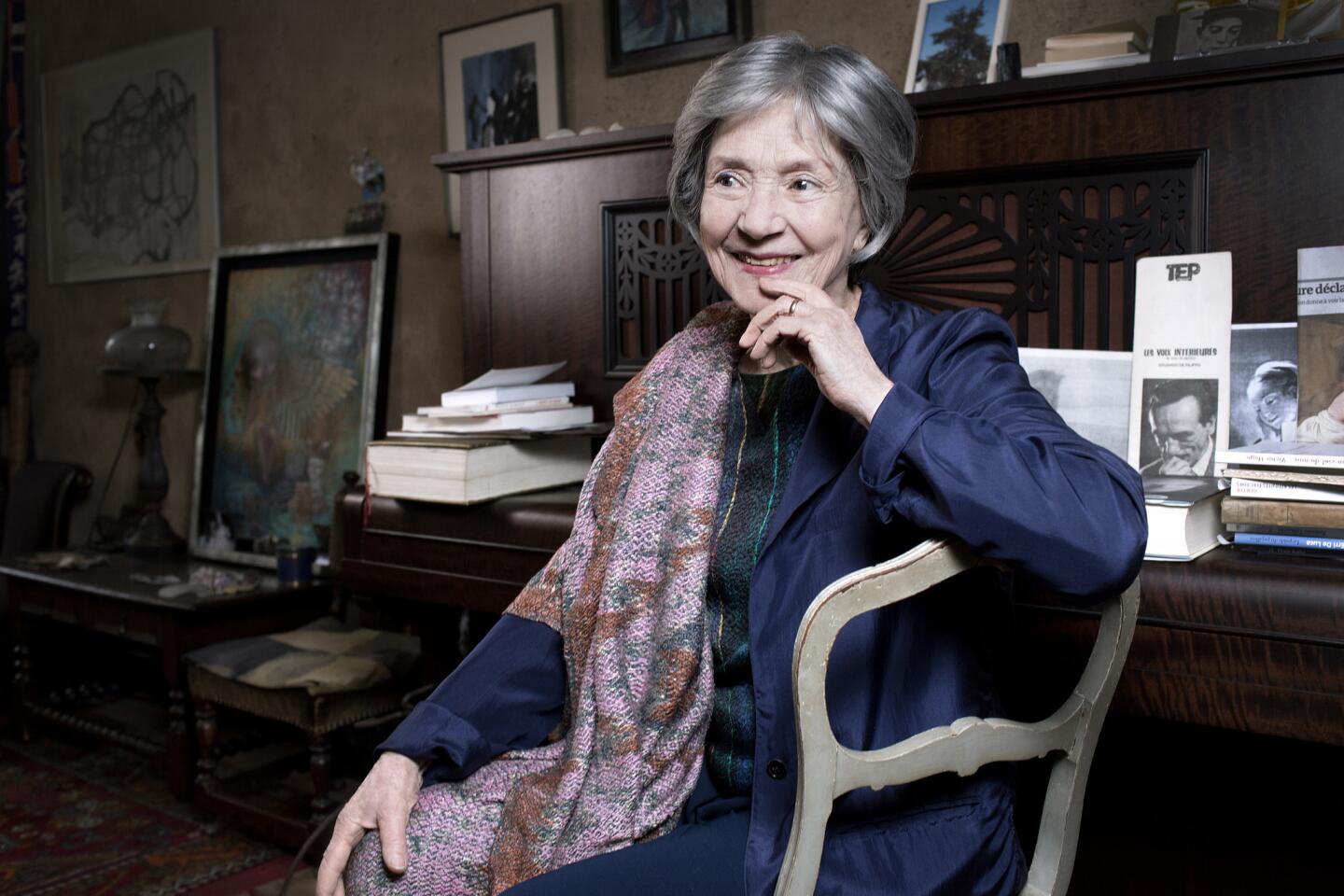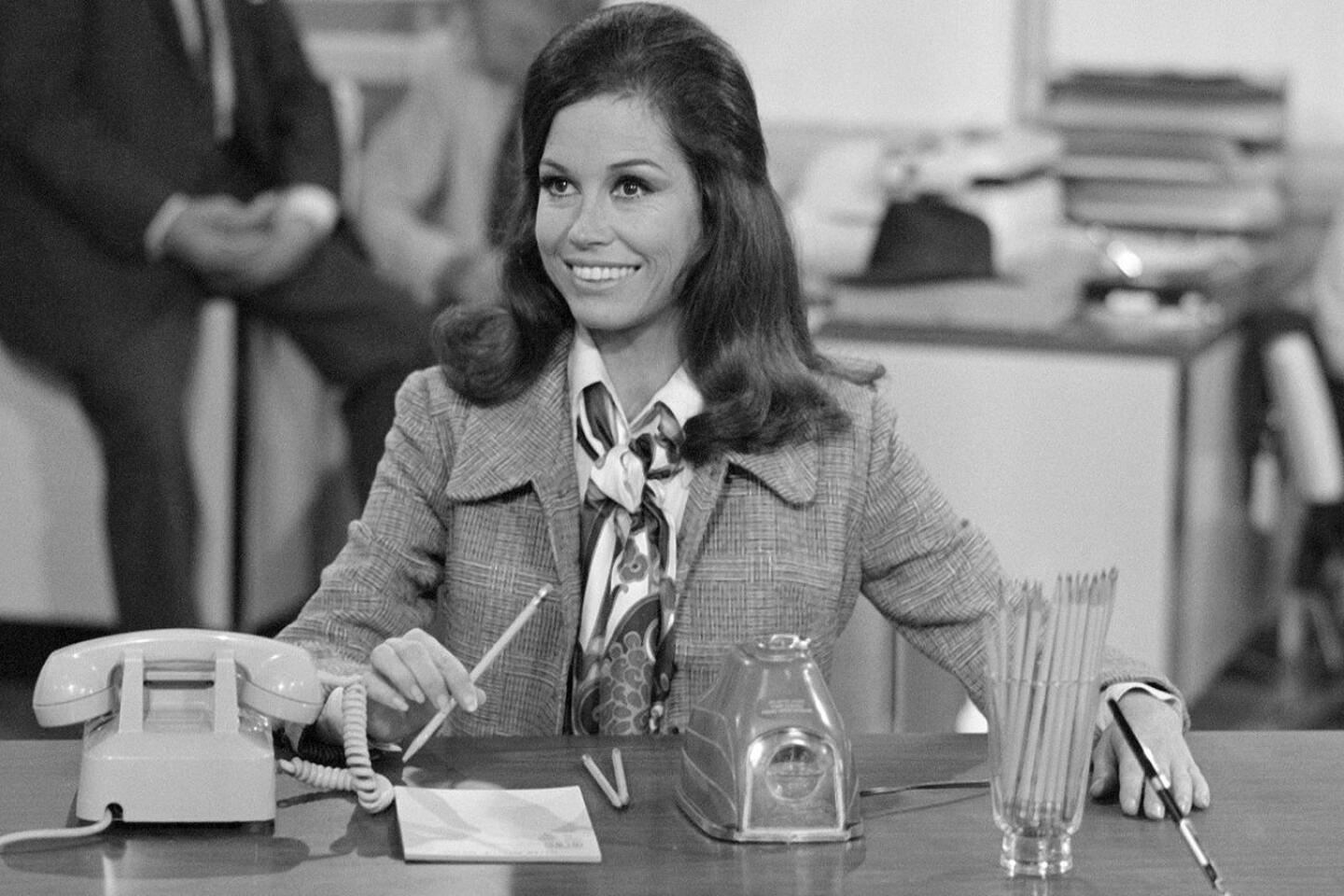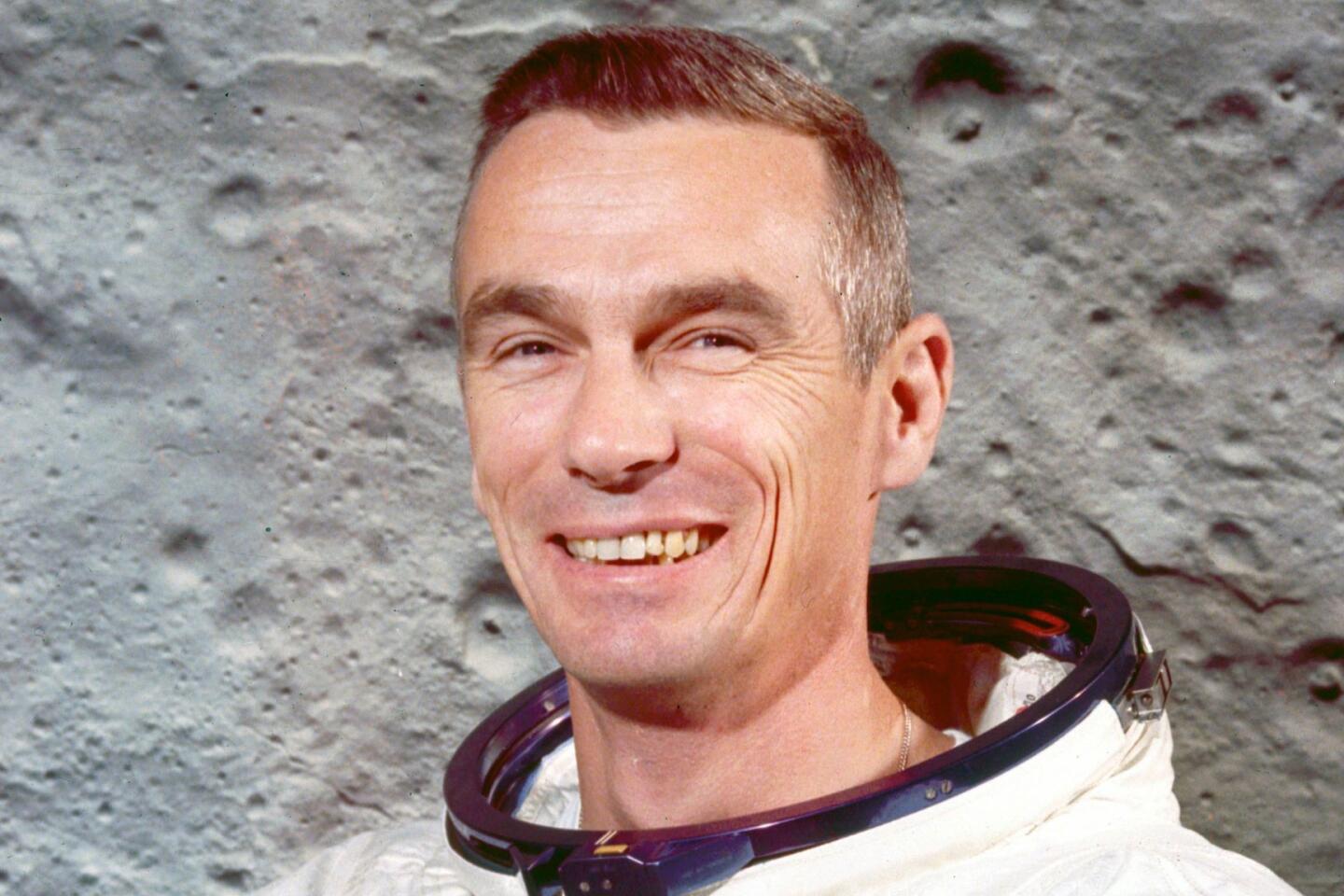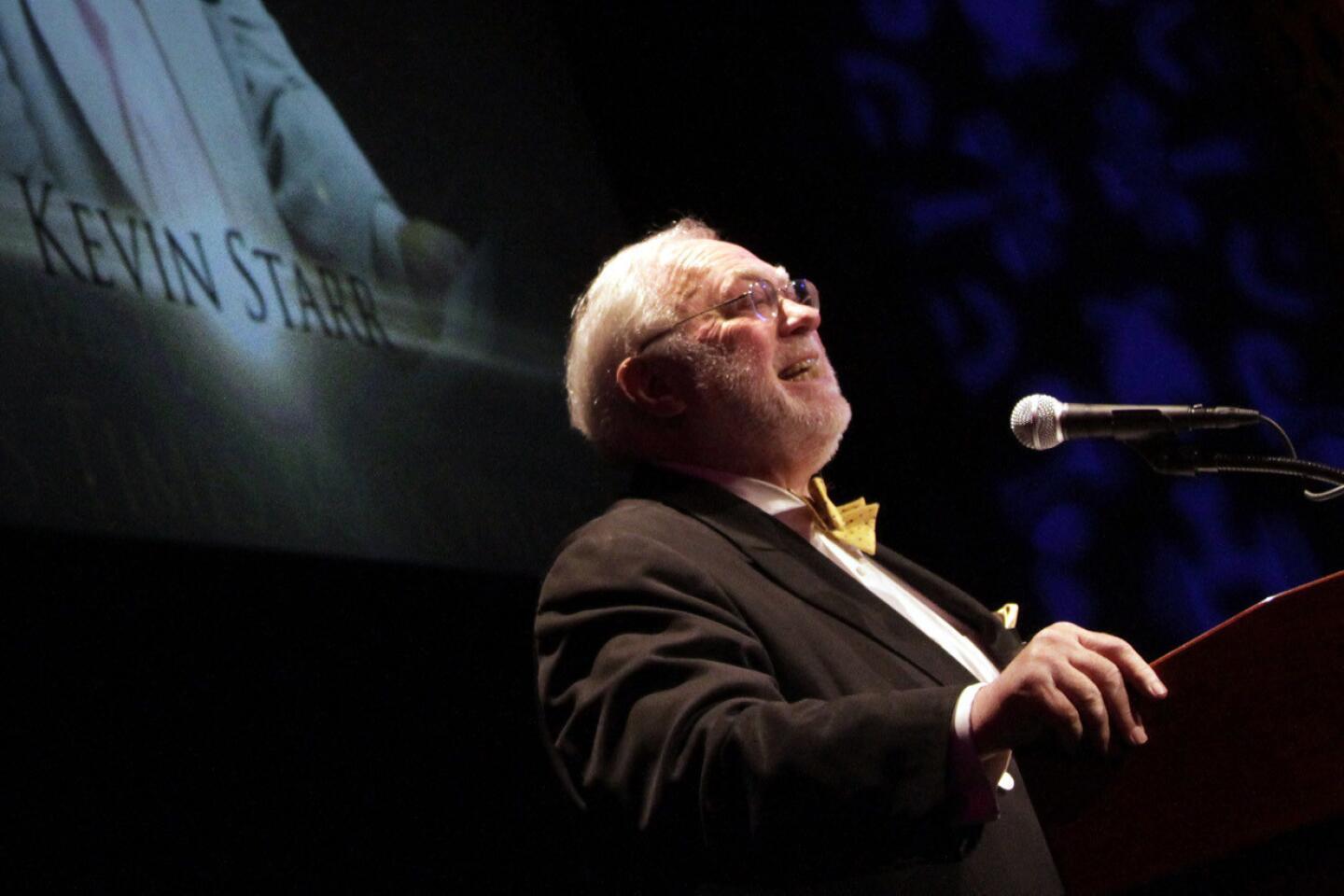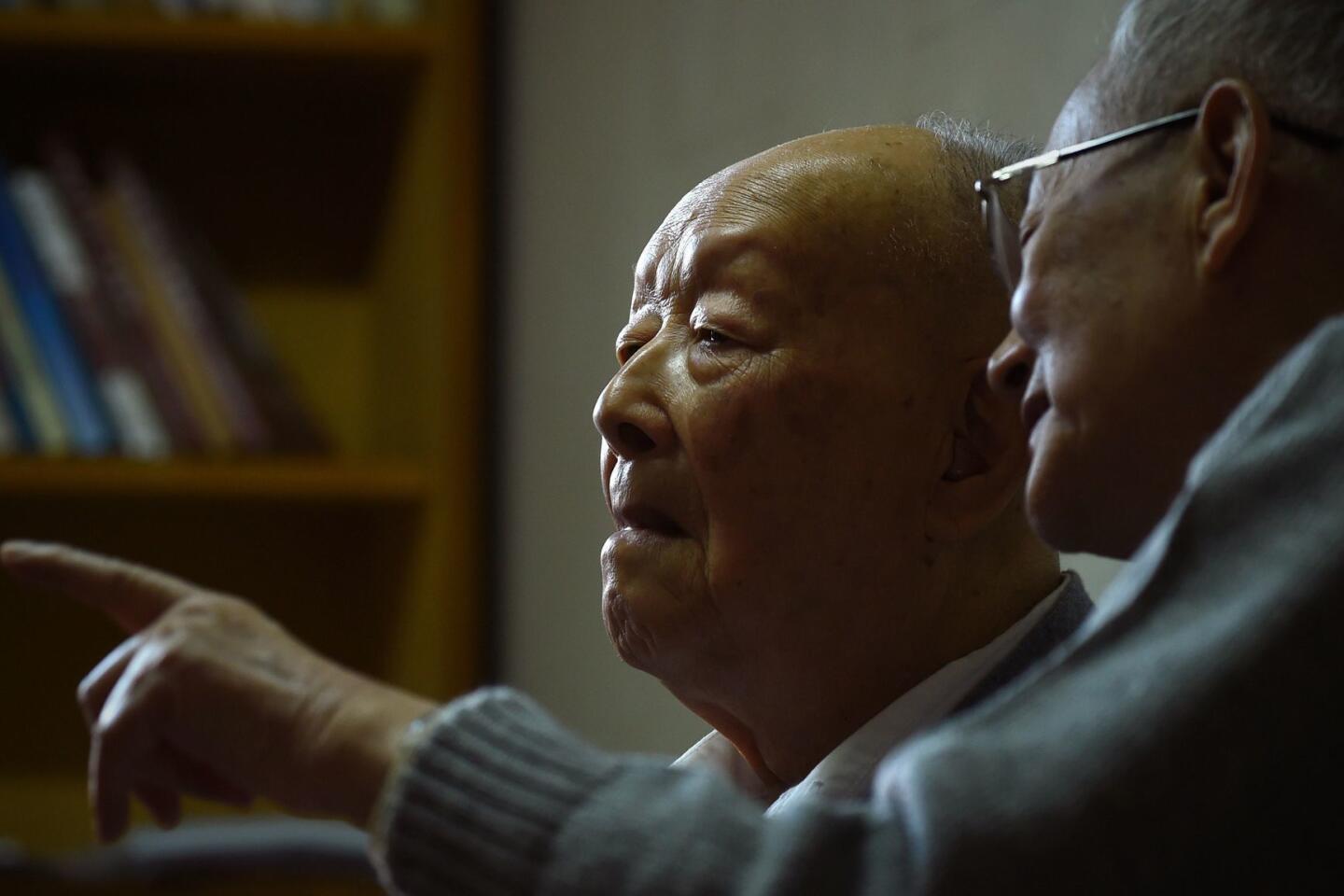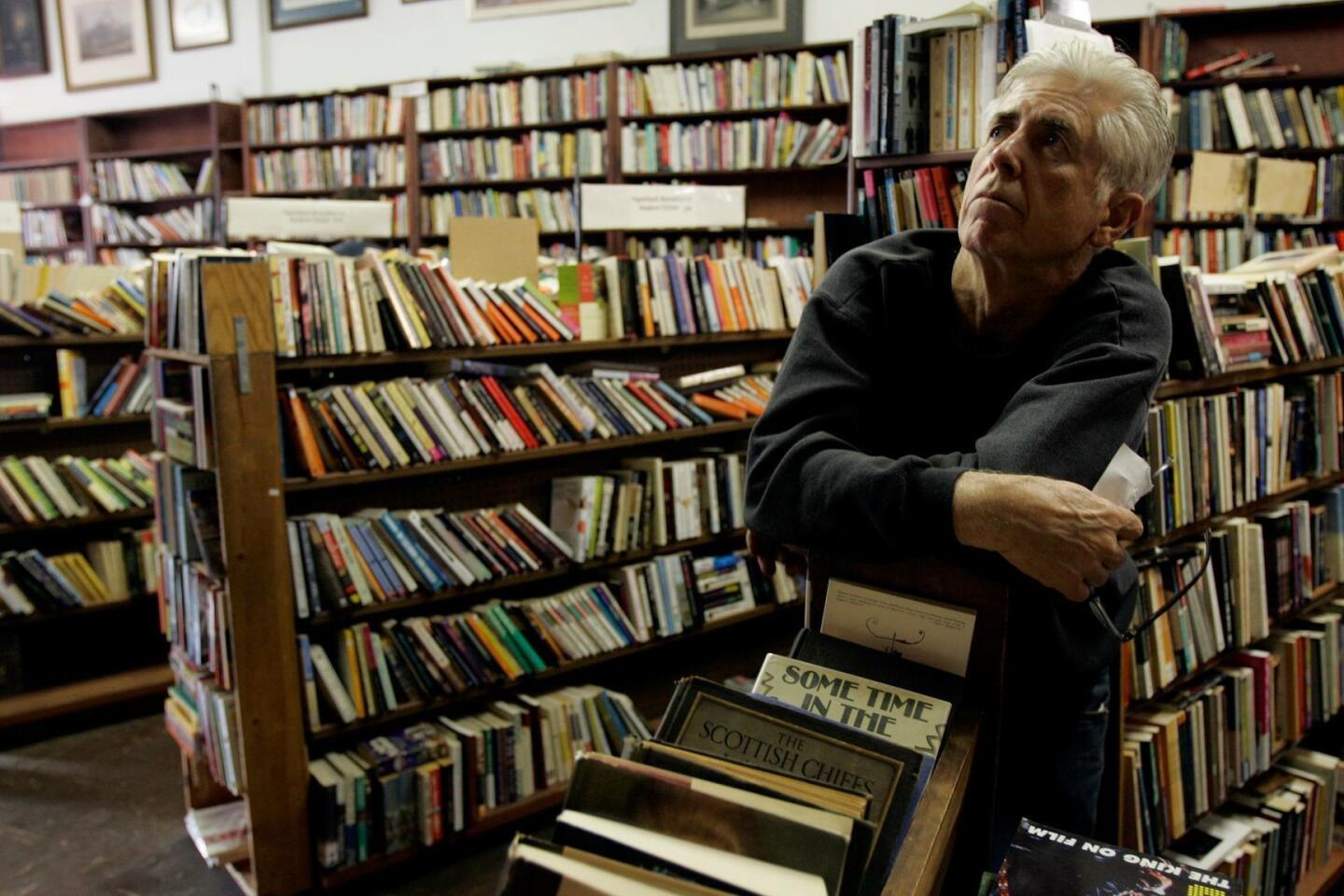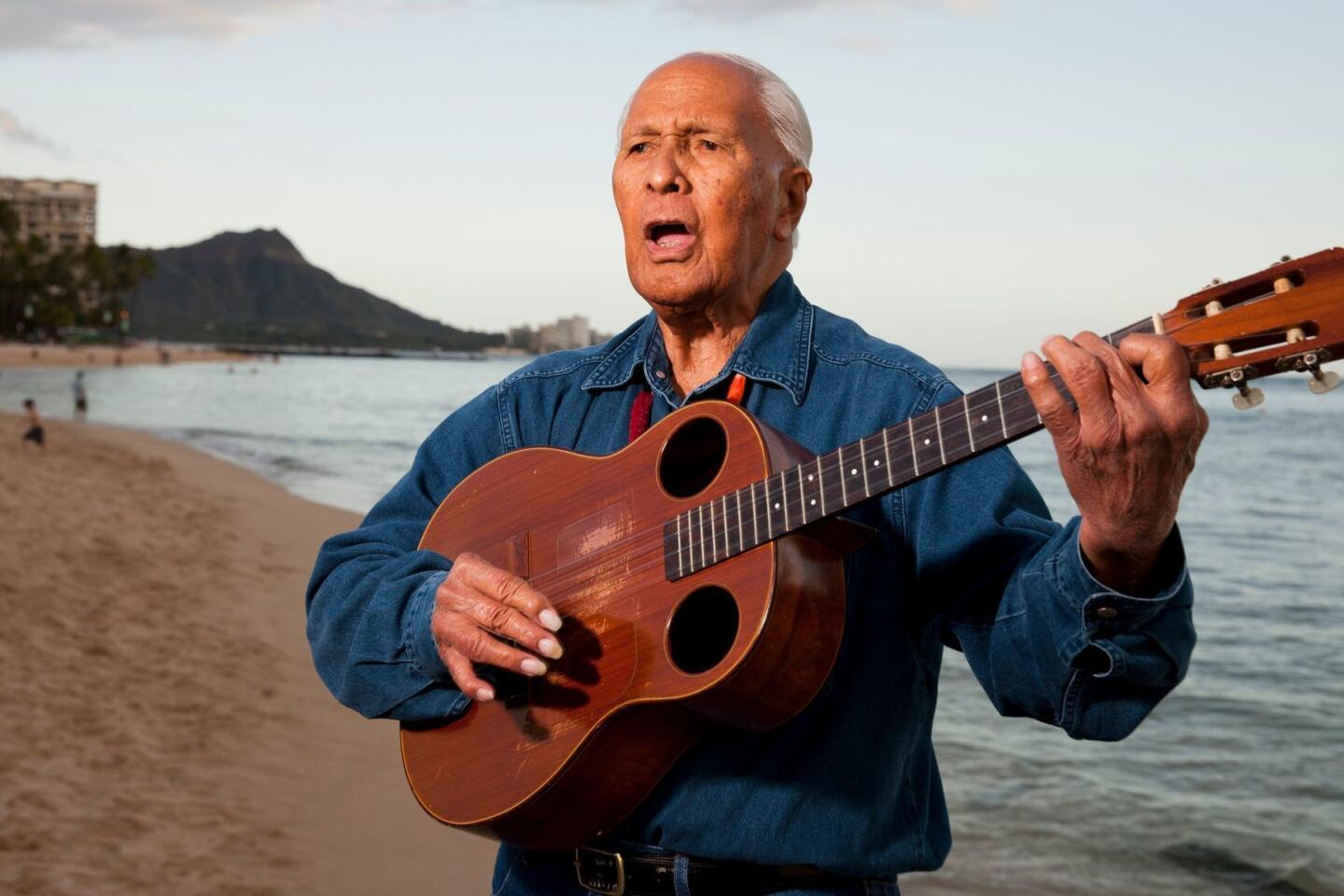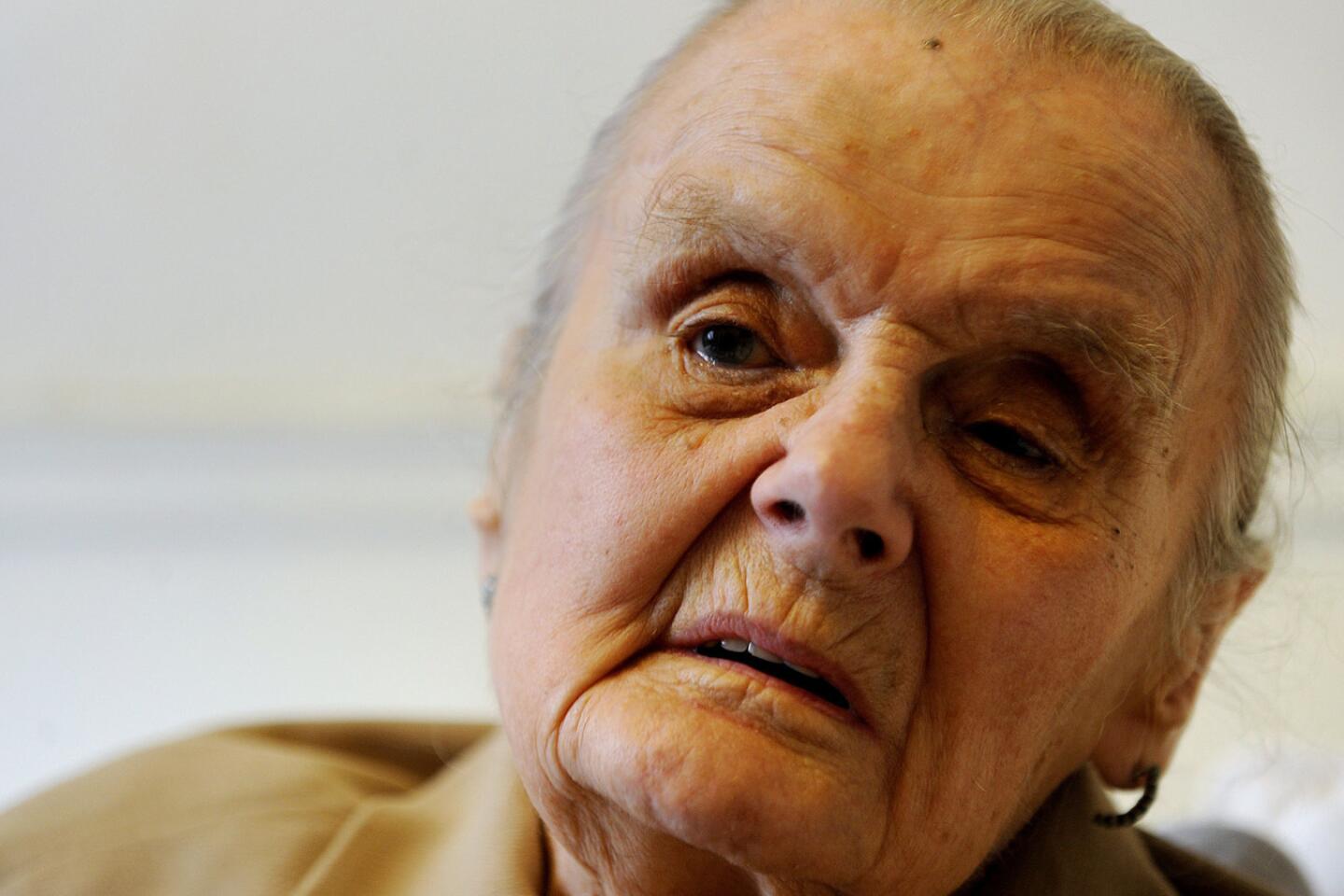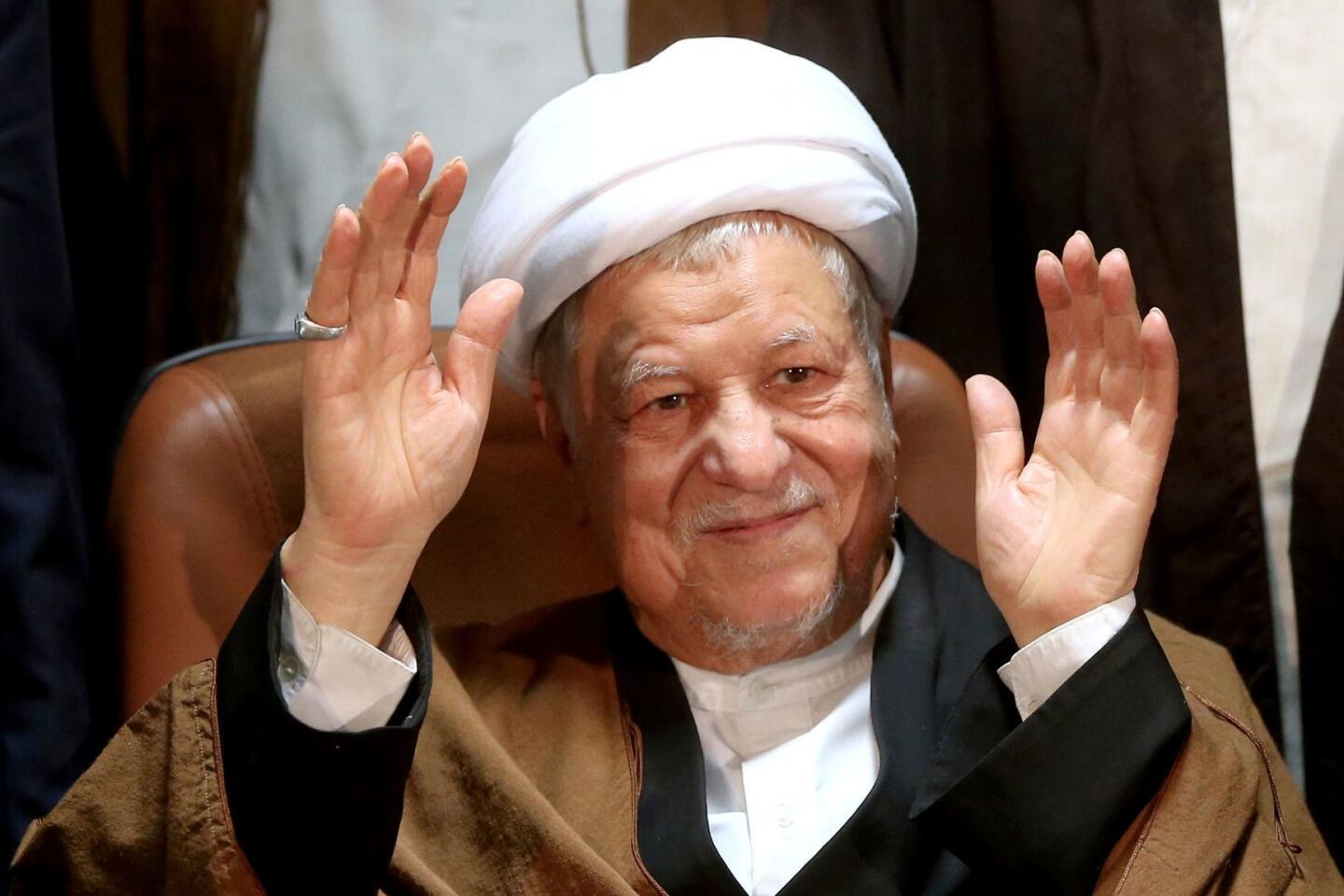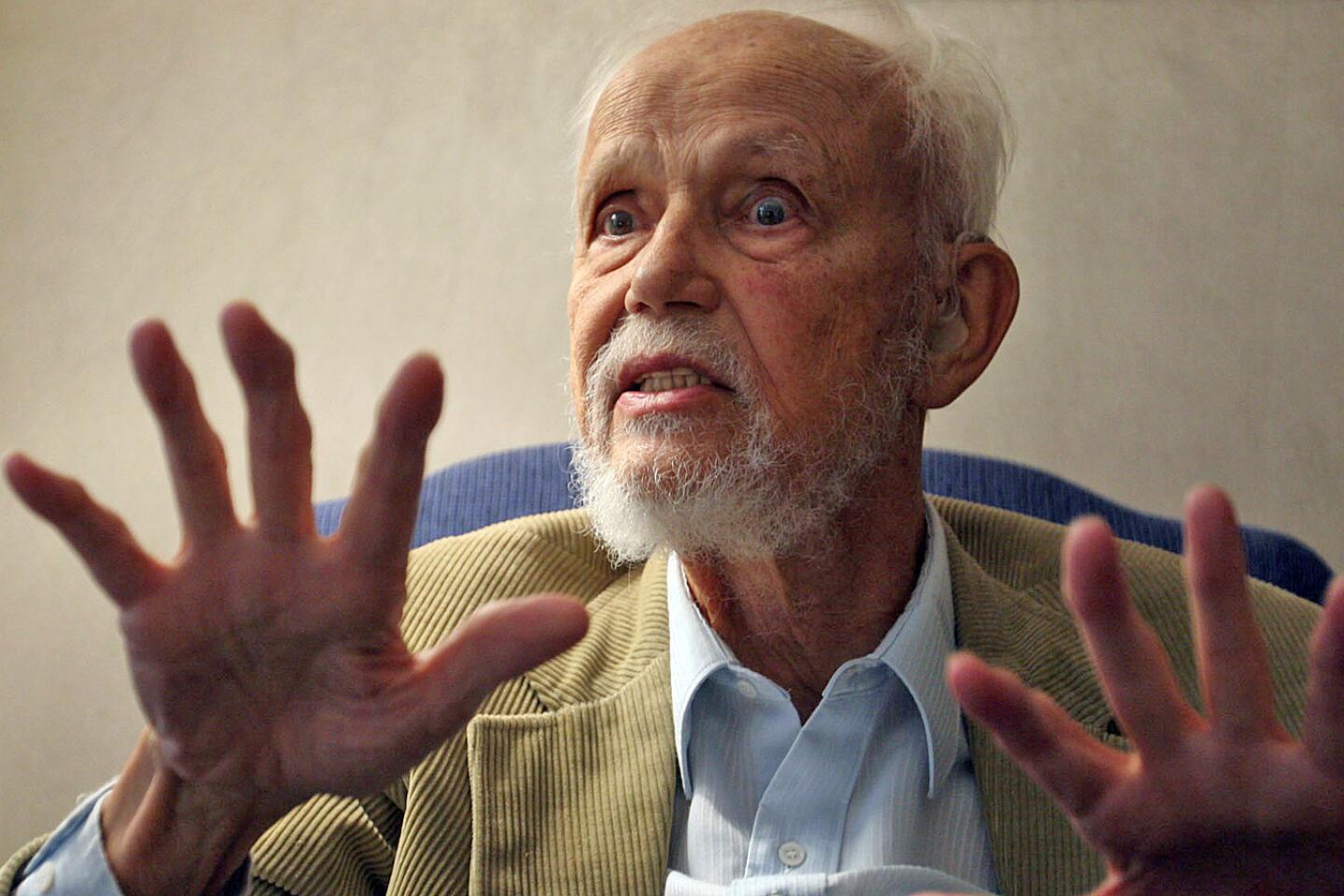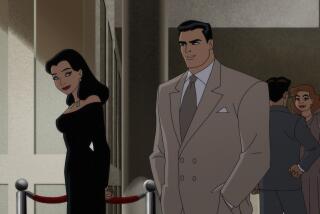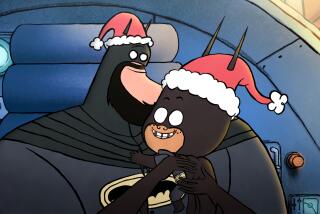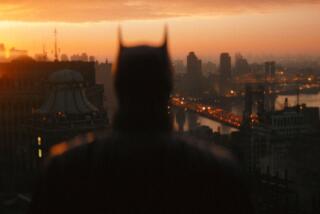Adam West, who donned a cape, cowl and tights to become an overnight sensation in 1966 as the star of the campy “Batman” TV series, has died, according to a family statement. He was 88.
West, who later lamented being typecast as the iconic Caped Crusader but eventually embraced having been part of American pop culture, died Friday in Los Angeles after a short battle with leukemia, according to multiple reports.
A former Warner Bros. contract player, West was appearing in TV commercials in the mid-1960s to help pay the rent. But several commercials he did for Nestle’s Quik chocolate powder — parodies of the popular James Bond movies in which West played a dry-witted character called Captain Q — had an unexpected outcome.
They caught the attention of 20th Century Fox TV producer William Dozier, who was looking for someone to star as Gotham City millionaire Bruce Wayne and his crime-fighting alter-ego, Batman, in a farcical new series for ABC.
1/6
Adam West, left, stars as Bruce Wayne/Batman, and Burt Ward is Dick Grayson/Robin in the TV series “Batman” in 1966.
(Silver Screen Collection / Getty Images) 2/6
Adam West attends the Batman: Return of the Caped Crusaders press room event at New York’s Comic-Con in 2016.
(Mike Coppola / Getty Images) 3/6
Adam West dresses as “Batman” in a road safety advertisement for children in 1967.
(Watson / Getty Images) 4/6
Adam West, in character as Bruce Wayne/Batman, sits behind the wheel of the Batmobile in 1966. The car was a modified 1955 Lincoln Futura concept car.
(Silver Screen Collection / Getty Images) 5/6
Adam West and Burt Ward star as Batman and Robin while riding in the Bat Boat in a scene from the 1966 TV series “Batman.”
(Camerique / Getty Images) 6/6
Adam West attends “Family Guy Another Freakin’ Mobile Game” on May 2, 2017, in Culver City. West voiced the character of Mayor Adam West on the animated TV show “Family Guy.”
(Joshua Blanchard / Getty Images for Jam City) Based on the DC character created by artist Bob Kane and writer Bill Finger in 1939, “Batman” debuted in January 1966 as a twice-weekly half-hour program — 7:30 p.m. Wednesdays and Thursdays, with the Wednesday episode ending on a cliffhanger.
West knew his life would never be the same the night the heavily promoted first episode aired.
“I stopped at the market on the way home,” he told Esquire magazine in 2004. “I thought, ‘Tonight, I just want to be alone. I’ll stop, get a steak and a six pack, whatever, then go home and watch the debut of the show.’
“As I walked through the checkout line, I heard people saying, ‘C’mon, c’mon, hurry up. “Batman” is coming on!’ And I said to myself, ‘Goodbye, anonymity.’ ”
The tongue-in-cheek series roared into public consciousness like the Batmobile out of the Batcave.
With West as the strait-laced crime fighter who spoke with what has been described as ironic earnestness and Burt Ward as his youthfully exuberant sidekick, Robin, “Batman” was a pop culture phenomenon in a decade that was full of them.
“This whole thing is an insane, mad fantasy world,” West said of the show in a Chicago Daily News interview shortly before its debut. “And my goal is to become American’s biggest put-on.”
It was high camp indeed, with fight scenes punctuated by comic book-style “POW!” “BOP!” and “WHAP!” exclamations flashing on the screen and an array of guest-star villains that included Frank Gorshin as the Riddler, Burgess Meredith as the Penguin, Cesar Romero as the Joker and Julie Newmar and Eartha Kitt as Catwoman.
West quickly learned the key to slipping into the Batman persona.
“You pull on the mask and the utility belt and the gloves, and you must believe the moment that’s done that you really are Batman,” West said in a late 1980s interview on TV’s “Entertainment Tonight.”
“What I loved about Batman was his total lack of awareness when it came to his interaction with the outside world,” West told London’s Independent newspaper in 2005. “He actually believed nobody could recognize him on the phone, when he was being Bruce Wayne, even though he made no attempt to disguise his voice.”
In the first episode of the series, he recalled, “Batman goes into a nightclub in the cowl, cape and bat gloves. When the maitre d’ says: ‘Ringside table, Batman?’ he replies, ‘No thank you. I’ll stand at the bar. I would not wish to be conspicuous.’ ”
In June 1966, The Times reported that “Batman” had been a “life-transforming” success for West: Fan mail was arriving “by the wagonsful” — as were requests for everything from personal appearances to locks of his hair.
But West, The Times said, had “no panic about becoming solely and totally identified with the caped role.”
“I love doing the show, and frankly it’s given me more identification than any three movies could have,” West told The Times. “What I’ve got to feel is that if I can make a success of this characterization, I can make a success of other characterizations.”
The “Batman” series spawned a 1966 movie version and an array of merchandise, including lunchboxes, dolls and toy Batmobiles.
Both nights of “Batman” were rated in the top-10 list of shows for the 1965-66 season. But as with any fad, the show’s popularity eventually began to fade.
By the fall of 1967, the series was cut back to once a week, and it was canceled in March 1968.
Before his overnight stardom as Batman, West had made guest appearances on TV series such as “Cheyenne,” “Maverick” and “77 Sunset Strip” and had been a regular for a season on Robert Taylor’s series “The Detectives.”
He also had roles in movies such as “Tammy and the Doctor” (1963), “Robinson Crusoe on Mars” (1964) and “The Outlaws Is Coming!” (1965, opposite the Three Stooges).
But after “Batman” ended, West told Scripps Howard News Service in 2001, “It was a bleak time in my career because of typecasting in ‘Batman.’ I couldn’t get away from it.”
As he told the Orange County Register in 1989: “I was almost to the finish line for a lot of big, leading-man type roles that I really wanted, but I’d always come in second or third. Somebody in charge would always say, ‘Hey, what are you guys doing? You can’t put Batman in bed with Faye Dunaway.”
West went on to do guest shots on “Fantasy Island” and “Laverne & Shirley” and other TV shows. He also appeared in movies such as “The Marriage of a Young Stockbroker” (1971), “Hooper” (1978) and “The Happy Hooker Goes Hollywood” (1980).
In 1986, he starred as the police captain in the 1986 NBC sitcom “The Last Precinct,” but the series was quickly canceled. He also voiced a few TV cartoon versions of “Batman” over the years and more recently provided the voice for Mayor Adam West in the animated comedy TV series “Family Guy.”
In time, West came to appreciate having played Batman.
“The reaction has been so positive and good for me that I love it now,” he told The Times in 2009. “How could I not? I would hate to be a bitter, aging actor. I’ve been so fortunate to have this opportunity to bring Batman alive on the screen.”
1/46
The Santa Barbara writer created one of the first modern hard-boiled female private eyes and topped bestseller lists for decades, inspiring loyal readers to name their daughters after the series’ heroine, Kinsey Millhone. She was 77. Full obituary
(Carolyn Cole / Los Angeles Times) 2/46
The veteran sports broadcaster was long recognized as one of the most versatile and perhaps most enthusiastic announcers of his era. He also was an author, a longtime fixture at Pasadena’s Rose Parade, the host of several sports-themed TV game shows and was still calling San Diego Padres baseball games in his later years. He was 82. Full obituary
(Lenny Ignelzi / Associated Press) 3/46
Lee, elected in 2011, was the first Chinese American mayor of San Francisco, home to the oldest Chinatown in the United States. He oversaw years of dramatic growth that transformed the city’s skyline while also sending real estate values to stratospheric levels. He was 65. Full obituary
(David Butow / For The Times) 4/46
The singer and actor became a TV icon in the 1960s playing the lovably naïve Gomer Pyle on “The Andy Griffith Show” and the spinoff series “Gomer Pyle, U.S.M.C.” He was 87. Full obituary
(CBS Photo Archive / Getty Images) 5/46
Called “the Elvis of Opera” and the “Siberian Express” by some, Hvorostovsky was known for his velvety baritone voice, dashing looks and shock of flowing white hair. He was 55. Full obituary
(Shiho Fukada / Associated Press) 6/46
The syndicated gossip columnist’s mixture of banter, barbs, and bon mots about the glitterati helped her climb the A-list as high as many of the celebrities she covered. She was 94. Full obituary
(Stephen Chernin / Associated Press) 7/46
The fashion iconoclast’s clingy styles helped define the 1980s. Naomi Campbell was a favored model, and Michelle Obama wore his designs as U.S. first lady. He was 77. Full obituary
(Barbara Davidson / Los Angeles Times) 8/46
Kaji was the founding president of the Japanese American National Museum, established in 1992 in Little Tokyo. Years earlier, he established his own accounting firm and was part of a group that founded Merit Savings & Loan, one of the first and one of the few Japanese American-owned banks. He was 91. Full obituary
(Edward Ornelas / Los Angeles Times) 9/46
As one of the founding fathers of rock ’n’ roll, Fats Domino blazed a singular path in the history of popular music. Pounding a piano and booming in a baritone both warm and conversational, he gave the nascent genre a shot of rhythm and blues, jazz and boogie woogie from his native New Orleans. He was 89. Full obituary
(AFP / Getty Images) 10/46
Best known for his portrayal of the sharp-tongued butler in the TV sitcoms “Soap” and “Benson,” Guillaume also played Nathan Detroit in the first all-black version of “Guys and Dolls” and became the first African American to sing the title role in “The Phantom of the Opera,” appearing with an otherwise all-white cast in Los Angeles. He was 89. Full obituary
(Ann Johansson / For The Times) 11/46
Hefner built a publishing and entertainment empire on the idea that Americans should shed their puritanical hang-ups and enjoy sex. As the founder of Playboy magazine, he pitched an alternative standard — swinging singlehood — which portrayed the desire for sex as being as normal as craving apple pie. He was 91. Full obituary
(George Brich / Associated Press) 12/46
The prolific character actor and occasional leading man brought a soulful, hangdog presence to such varied films as “Alien,” “Paris, Texas,” “Repo Man” and “Pretty in Pink,” becoming a favorite of film fans and directors alike. He was 91. Full obituary
(Richard Derk / Los Angeles Times) 13/46
The gay rights pioneer brought a Supreme Court case that struck down parts of a federal law that banned same-sex marriage and led to federal recognition for gay spouses. She was 88. Full obituary
(Richard Drew / Associated Press) 14/46
Stomping over miniature bridges and buildings in a rubber suit, Nakajima portrayed Godzilla, the fire-breathing, screeching monster that became Japan’s star cultural export and an enduring symbol of the pathos and destruction of the Atomic Age. Nakajima said he invented the character from scratch, and developed it by going to a zoo to study how elephants and bears moved. He was 88. Full obituary
(Junji Kurokawa / Associated Press) 15/46
Kanno spent what should have been his final high school years confined to a World War II-era internment camp. He went on to become one of America’s first Japanese American mayors as an early-day politician in Orange County. He was 91. Full obituary
(Mark Boster / Los Angeles Times) 16/46
Romero will be remembered best for co-writing and directing “Night of the Living Dead.” The “Living Dead” franchise went on to create a subgenre of horror movies whose influence across the decades has endured, seen in films like “The Purge” and TV shows such as “The Walking Dead.” He was 77. Full obituary
(Amy Sancetta / Associated Press) 17/46
The Oscar-winning actor appeared in classic films such as Alfred Hitchcock’s “North By Northwest” and starred in the “Mission: Impossible” television series in the 1960s. He won his Academy Award for his portrayal of washed-up Bela Lugosi in Tim Burton’s “Ed Wood.” He was 89. Full obituary
(CBS Photo Archive / CBS via Getty Images) 18/46
The French survivor of Nazi concentration camps and a European Parliament president was one of France’s most prominent female politicians. She was best known in France for leading the heated battle to legalize abortion in the 1970s. France’s abortion rights law is still known four decades later as the “Loi Veil.” She was 89. Full obituary
(AFP / Getty Images) 19/46
The British author created Paddington Bear, the marmalade-loving teddy in a duffel coat and floppy hat. His creation become an icon immortalized in print, on screens and as countless stuffed toys. Bond was 91. Full obituary
(Sang Tan / Associated Press) 20/46
Pressman, center, was an Emmy-winning journalist who worked at WNBC for more than 50 years after stints at New Jersey’s Newark Evening News and the New York World Telegram and Sun. He covered the 1956 sinking of the Italian ocean liner Andrea Doria, riots at the 1968 Democratic National Convention, the Woodstock festival in 1969 and the terror attacks on Sept. 11, 2001. He was 93. Full obituary
(Ron Frehm / Associated Press) 21/46
The Santa Cruz entrepreneur opened one of the world’s first surf shops and pioneered the neoprene wetsuit that helped popularize year-round cold-water surfing. He lost his eye in a surfing accident. He was 94. Full obituary
(Dan Coyro / Associated Press) 22/46
The former dictator of Panama often played opposing sides of Cold War-era political battles until he was ousted by his on-again, off-again sponsors and toppled in a U.S. invasion. He was 83. Full obituary
(AFP / Getty Images) 23/46
Deford was an award-winning sports journalist and commentator whose elegant reportage was a staple for years at Sports Illustrated and National Public Radio. He was the first sportswriter awarded the National Humanities Medal. In 2013, President Obama honored him for “transforming how we think about sports.” He was 78. Full obituary
(Carolyn Kaster / AP) 24/46
Perenchio deftly pulled the levers of power to create culturally defining media events, propel political candidates, collect masterpiece artworks and become one of the richest men in Los Angeles. In late 2014, he announced that he would leave much of his collection — at least 47 works valued at more than $500 million — to the Los Angeles County Museum of Art. He was 86. Full obituary
(Genaro Molina / Los Angeles Times) 25/46
The polarizing Fox News founder was credited with turning the news channel into a ratings powerhouse over his 20 years at the helm. He was ousted from the network following sexual harassment charges. He was 77. Full obituary
(Jennifer S. Altman / For The Times) 26/46
The former child star played Joanie Cunningham in the sitcoms “Happy Days” and “Joanie Loves Chachi.” Her more recent credits included “The Love Boat” and “Murder, She Wrote.” She was 56. Full obituary
(Wally Fong / Associated Press) 27/46
Using insult as his weapon of choice and a quick, knowing smirk as his defense, Rickles delighted audiences with his brand of aggressively caustic humor that targeted everyone from unknown “hockey pucks” to big-name celebrities. He was 90. Full obituary
(Jay L. Clendenin / Los Angeles Times) 28/46
A close confidante of Nelson Mandela, Kathrada dedicated his life to opposing apartheid and racism. An African National Congress activist, he played a major role in South Africa’s liberation struggle. He was 87. Full obituary
(Kopano Tlape / EPA) 29/46
The billionaire businessman and philanthropist was the last in his generation of one of the country’s most famously philanthropic families. He was 101. Full obituary
(D. Pickoff / Associated Press) 30/46
The Pulitzer Prize-winning newspaper columnist was part of the wave of practitioners of what came to be known as New Journalism: a group of gifted writers that included Tom Wolfe, Gay Talese, Hunter S. Thompson, Joan Didion and others who reported on the social and cultural upheavals of the 1960s and ’70s. His writing made him a New York City institution for more than 40 years. He was 88. Full obituary
(Mario Cabrera / Associated Press) 31/46
One of the founding fathers of rock ’n’ roll, Berry was an innovator who designed much of the music’s sonic blueprint and became his era’s most creative lyricist. He was 90. Full obituary
(Michael Ochs Archives / Getty Images) 32/46
The Nobel-prize winning poet was known for capturing the essence of his native Caribbean. His work was widely praised for its depth and bold use of metaphor, and its mix of sensuousness and technical prowess. He was 87. Full obituary
(Berenice Bautista / Associated Press) 33/46
The Boxing Hall of Fame trainer and manager handled the careers of 19 champions including heavyweight Evander Holyfield. Duva with his family built the promotional company Main Events into one of boxing’s powerhouses. He was 94. Full obituary
(Mike Groll / Associated Press) 34/46
The silver-haired and dapper Osborne was a bona fide movie connoisseur who displayed his wide knowledge of films as the genial host on Turner Classic Movies since its launch in 1994. Osborne was a longtime columnist for the Hollywood Reporter and the “official biographer” of the Academy Awards. He was 84. Full obituary
(Carolyn Cole / Los Angeles Times) 35/46
Dubbed the “Acrobat of Scat” for his vocal delivery, Jarreau was admired by fans for his imaginative and improvisational qualities. He is best known for his single “We’re in This Love Together” from 1981. He is the only Grammy vocalist to win in the jazz, pop and R&B categories. He was 76. Full obituary
(Felipe Dana / Associated Press) 36/46
Mansfield won the Nobel Prize for helping to invent MRI scanners. In 1978, he was the first person to step inside a whole-body MRI scanner so it could be tested on a human subject. His work, alongside chemist Paul Lauterbur, revolutionized the detection of disease by revealing internal organs without the need for surgery. He was 83. Full obituary
(David Jones / Associated Press) 37/46
Riva’s portrayal of an elderly woman in the 2012 end-of-life drama “Amour” earned her international acclaim and the distinction of being the oldest nominee for a lead actress Oscar. She was 89. Full obituary
(Francois Mori / Associated Press) 38/46
Moore rose to stardom on “The Dick Van Dyke Show” in the 1960s and went on to headline “The Mary Tyler Moore Show,” a highly successful sitcom in the 1970s (pictured). The actress and her television character became so entwined that Moore became a role model for women who sought to challenge the conventions of marriage and family. She was 80. Full obituary
(CBS Photo Archive / Getty Images) 39/46
Cernan, commander of NASA’s Apollo 17 mission, set foot on the moon in December 1972 during his third space flight. He was the last of only a dozen men to walk on the moon. He returned to Earth with a message of “peace and hope for all mankind.” He died at 82. Full obituary
(SSPL / Getty Images) 40/46
The former California state librarian wrote rich cultural, economic and political histories on the birth, growth and maturation of the Golden State. He captured the state’s rise in influence and its singular hold on the public imagination in his sweeping “Americans and the California Dream” series. Full obituary
(Lawrence K. Ho / Los Angeles Times) 41/46
Youguang was a linguist considered to be the father of modern China’s Pinyin Romanization writing system. Adopted by the People’s Republic in 1958, Pinyin has virtually become the global standard because of its simplicity and consistency. He was 111. Full obituary
(Wang Zhao / AFP/Getty Images) 42/46
Dutton was the owner of Dutton’s Books, a Los Angeles landmark with its overflowing shelves and hard-to-find titles. Dutton’s Books on Laurel Canyon Boulevard, along with sister locations in Burbank and downtown Los Angeles, was at the very center of literary L.A. when it opened in 1961. He was 79. Full obituary
(Gina Ferazzi / Los Angeles Times) 43/46
Kamae was one of the most influential Hawaiian musicians of the last half-century and a filmmaker who painstakingly documented the culture and history of the islands. He had long been the face of the Sons of Hawaii, a popular recording group and a pioneering force in traditional island music. He was 89. Full obituary
(Marco Garcia / For The Times) 44/46
The British war correspondent was the first journalist to report the Nazi invasion of Poland that marked the beginning of World War II. She won major British journalism awards, and was made an Officer of the Order of the British Empire by Queen Elizabeth II. She was 105. Full obituary
(Mike Clarke / AFP/ Getty Images) 45/46
The former Iranian president was an aide to Iran’s revolutionary supreme leader, the late Ayatollah Ruhollah Khomeini. Although Rafsanjani’s legacy was tarnished by allegations of corruption and authoritarianism, his backing helped moderate President Hassan Rouhani win election in 2013, setting the Islamic Republic on a path to ending its disputed nuclear program and easing its isolation from the West. He was 82. Full obituary
(Ebrahim Noroozi / Associated Press) 46/46
A scholar of world religions, Smith is best known for his work “The Religions of Man,” first published in 1958. It was reissued as “The World’s Religions” in 1991 and has sold about 2 million copies. His informed yet accessible prose led many laymen to read his books as their introduction to religions of the East and West. He was 97. Full obituary
(Tina Fineberg / Associated Press) As for the newer, darker depictions of Gotham City on the big screen, West said they “are grim, Gothic, full of explosions, mayhem. It’s the way of things, I suppose; the whole world seems darker.”
But, he said, “I look at [it] this way: They’ve got ‘The Dark Knight,’ and I was the bright knight. Or maybe I was even ... the neon knight.”
Born William West Anderson on Sept. 19, 1928, in Seattle, West grew up on a farm outside Walla Walla, Wash., before his parents divorced and he moved to Seattle to live with his mother and her new husband.
He majored in English literature at Whitman College in Walla Walla. He later did post-graduate work in communications at Stanford University but dropped out after six weeks to take a job at a Sacramento radio station.
West, who was drafted into the Army in the early 1950s, was hosting a local daily variety show in Hawaii with a chimp named Peaches and acting in community theater when a Hollywood agent saw him playing the lead in a production of “Picnic.” In 1959, West became a contract player at Warner Bros.
ALSO
Actress Glenne Headly, ‘Lonesome Dove’ and ‘Dirty Rotten Scoundrels’ star, dies at 62
Peter Sallis, voice of ‘Wallace and Gromit,’ dies at 96
Elena Verdugo, one of TV’s first professional Latinas as nurse in ‘Marcus Welby, M.D.’, dies at 92
